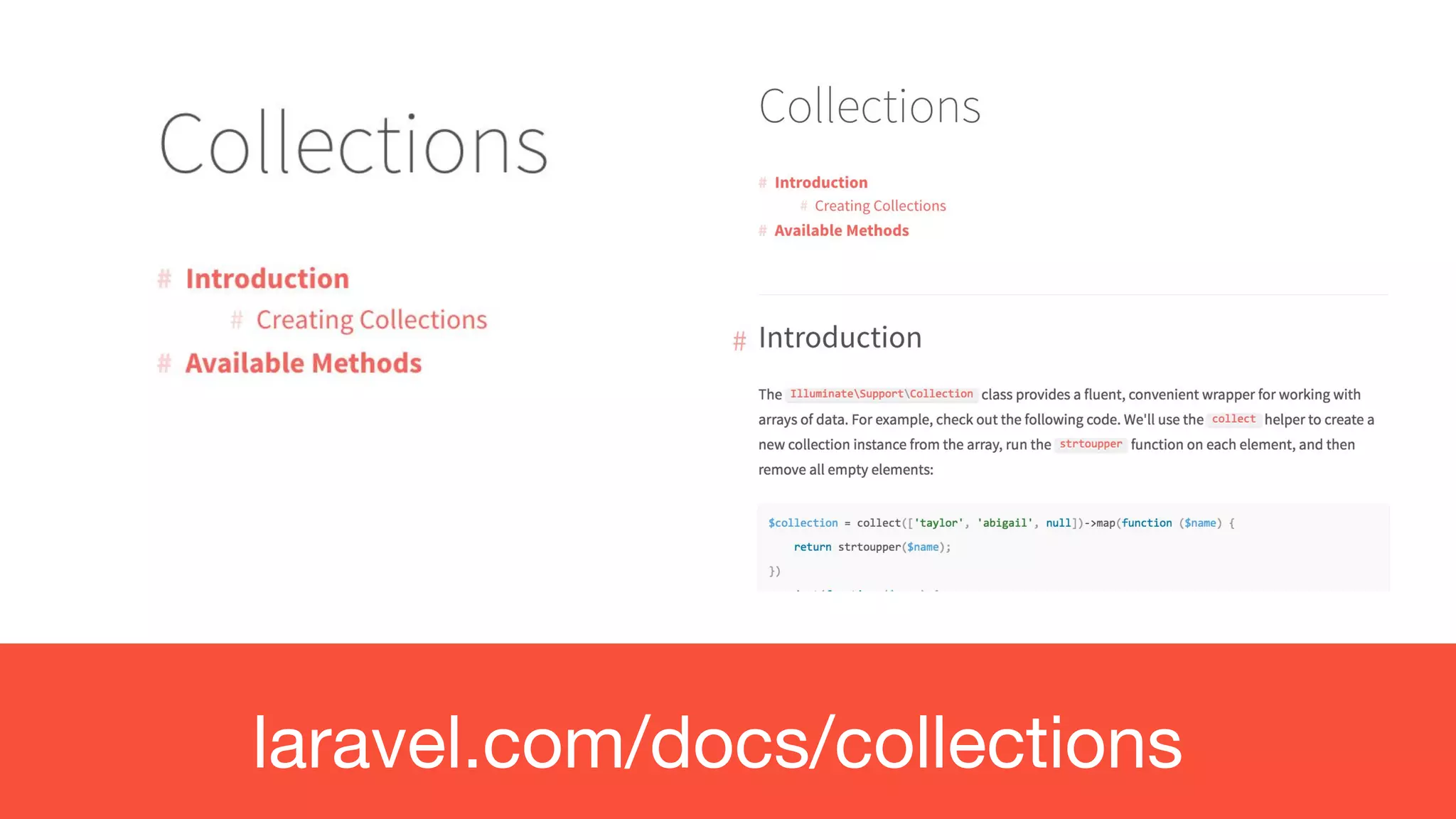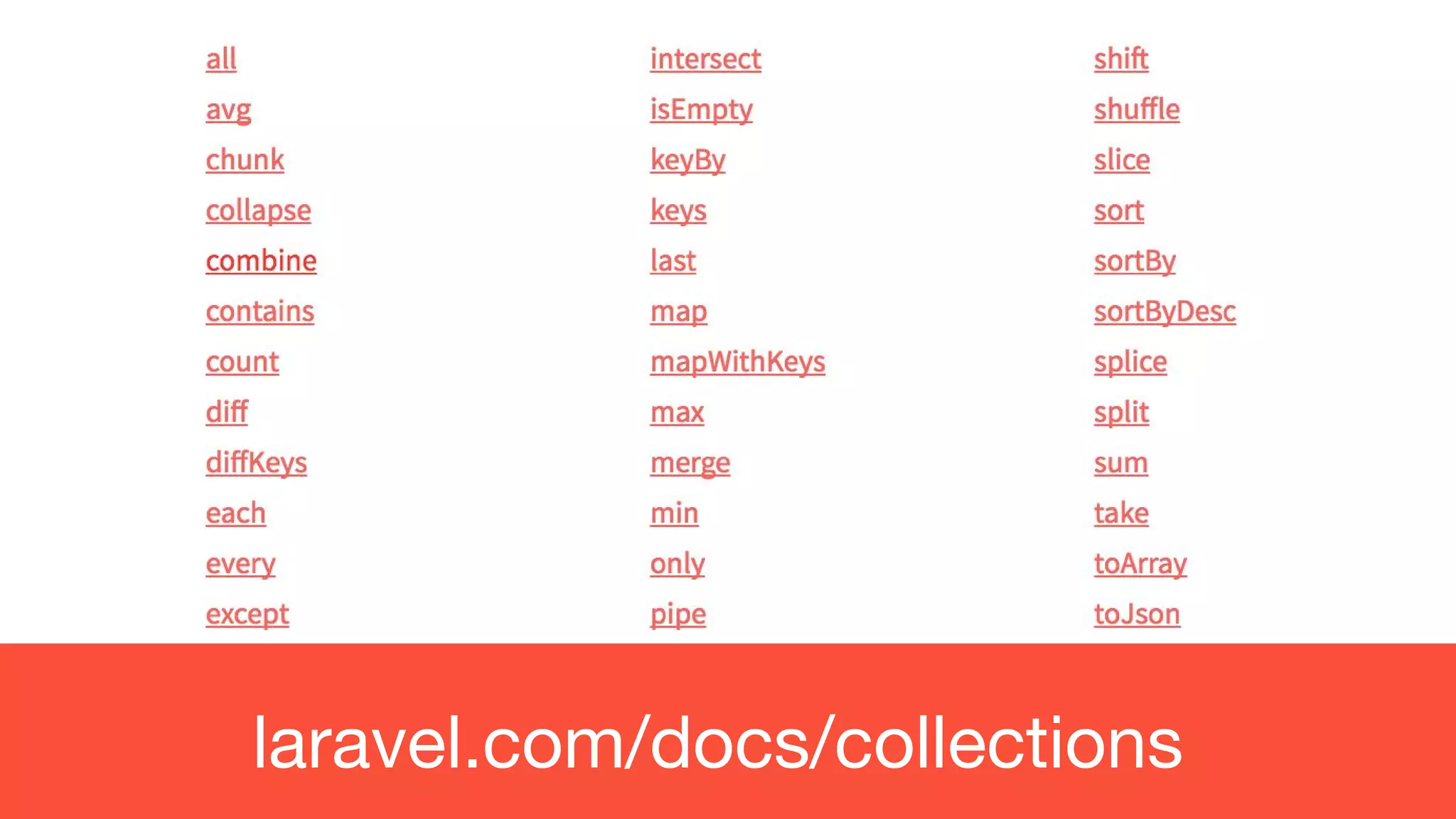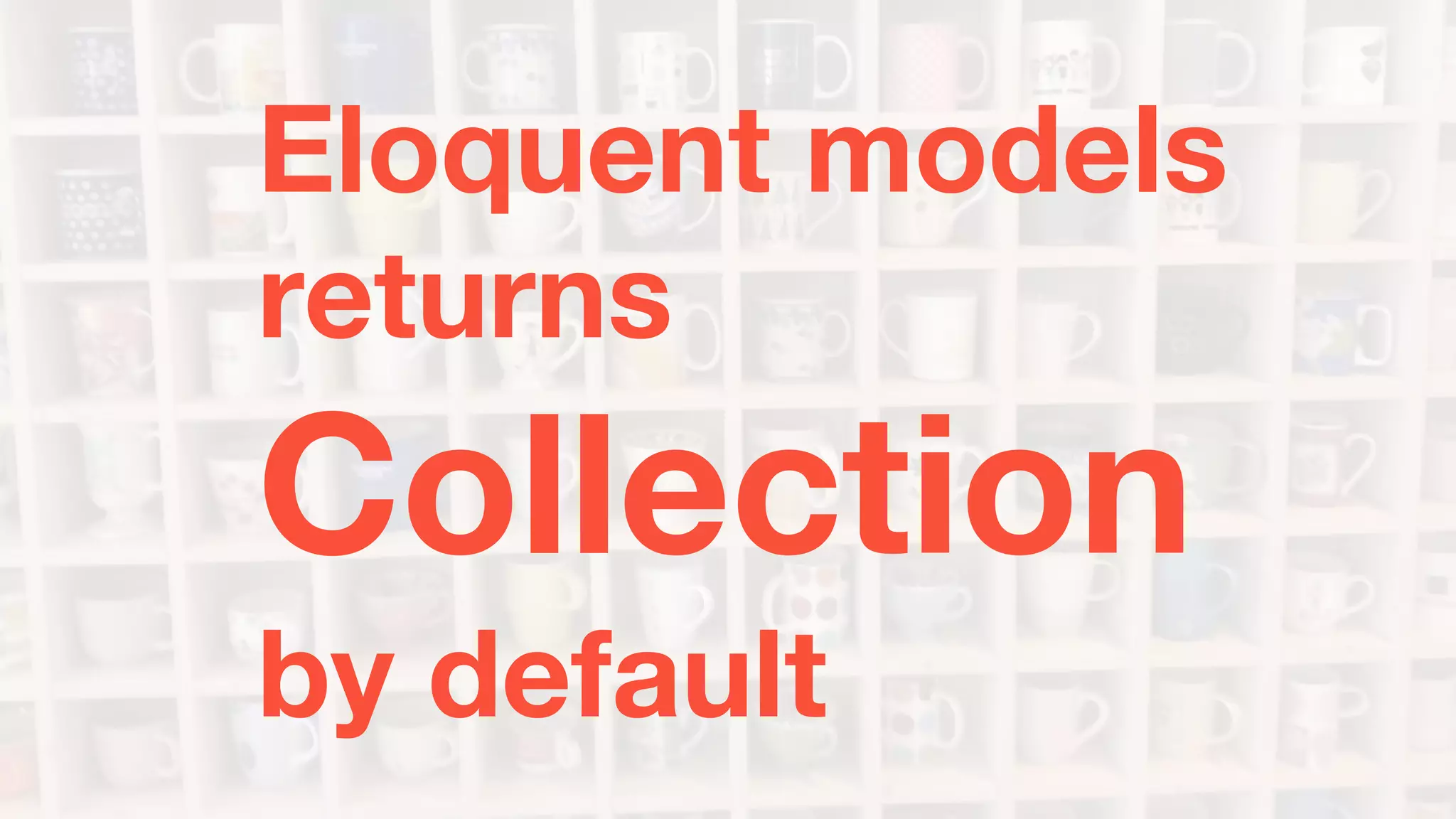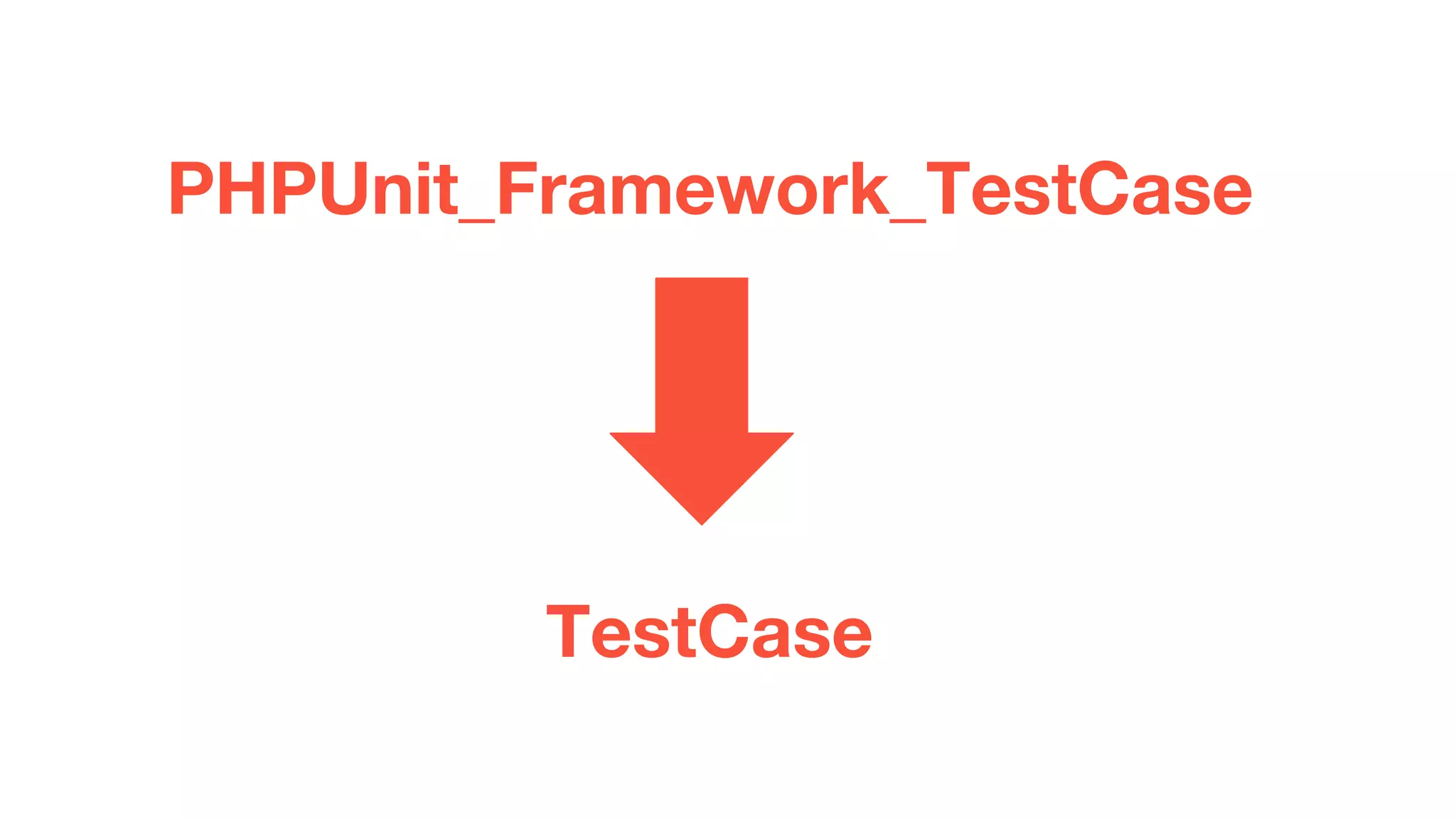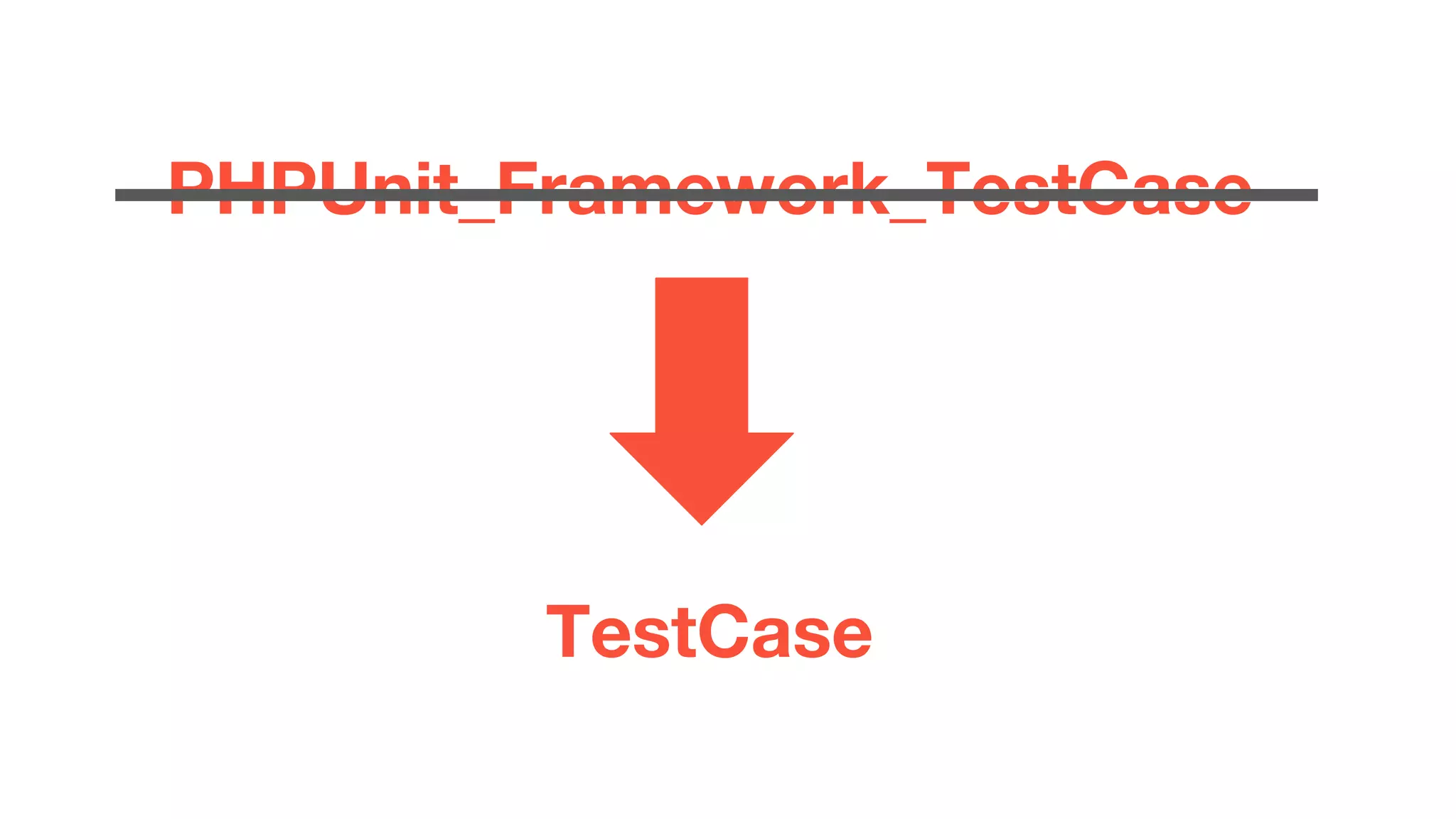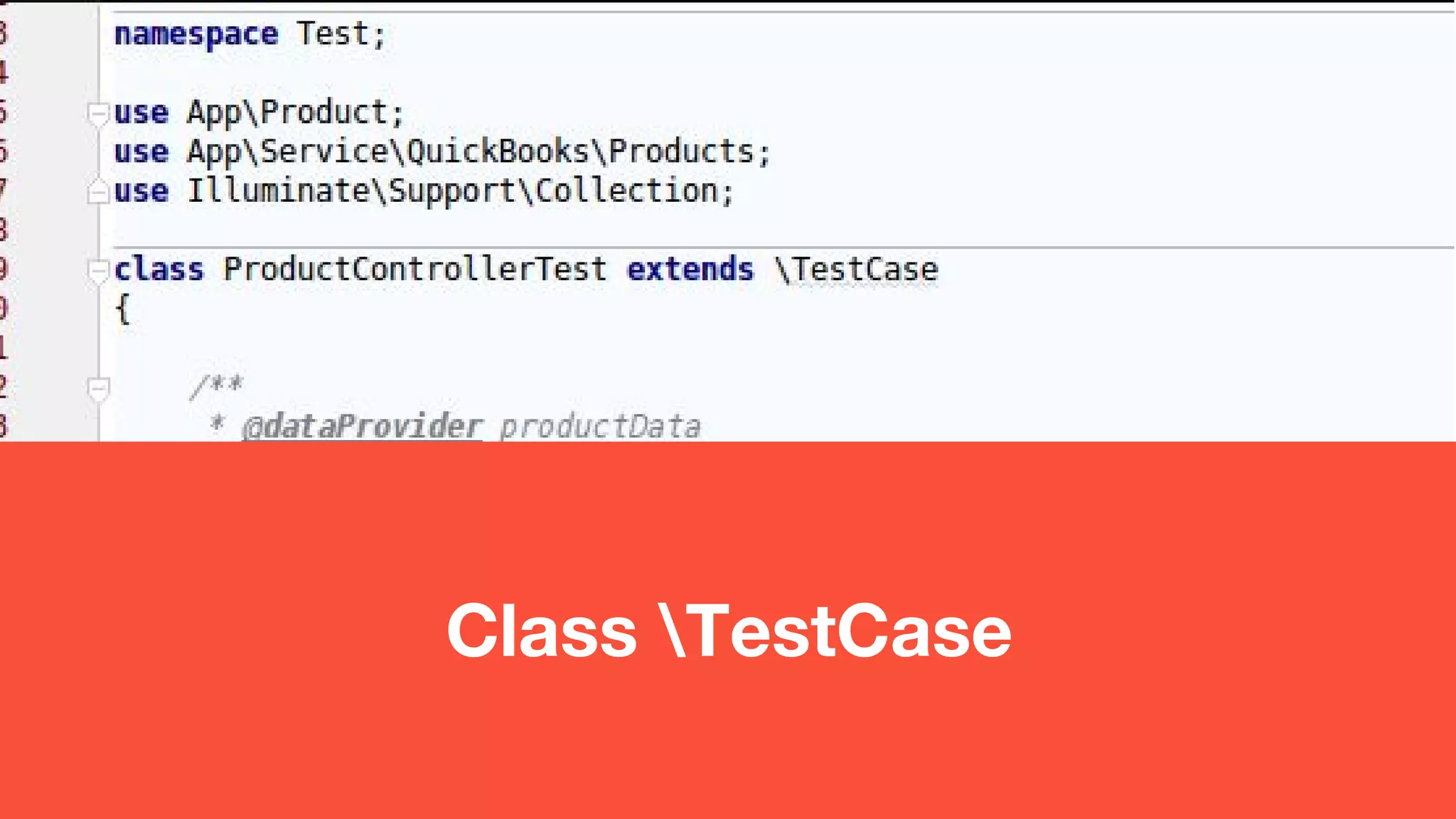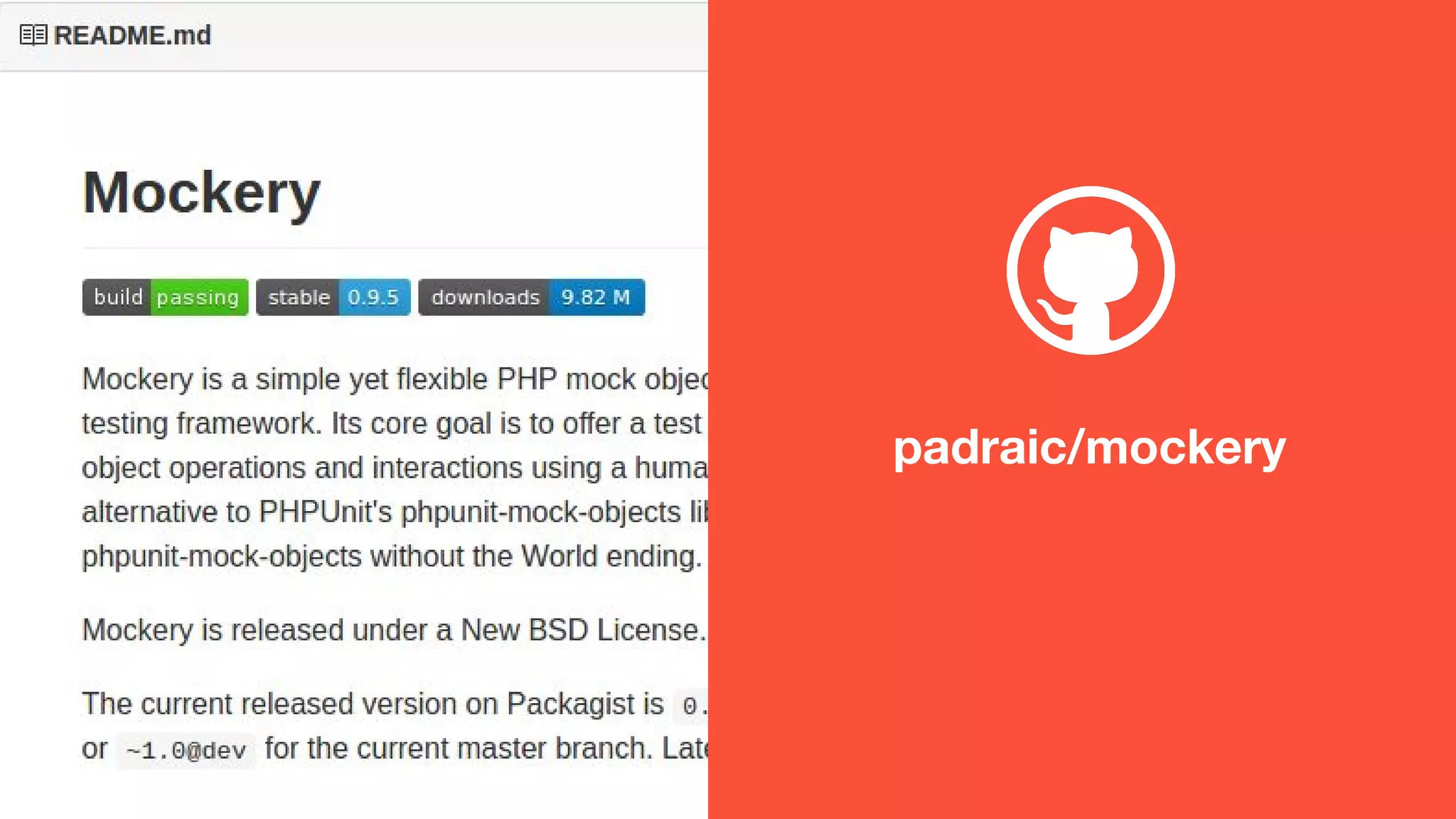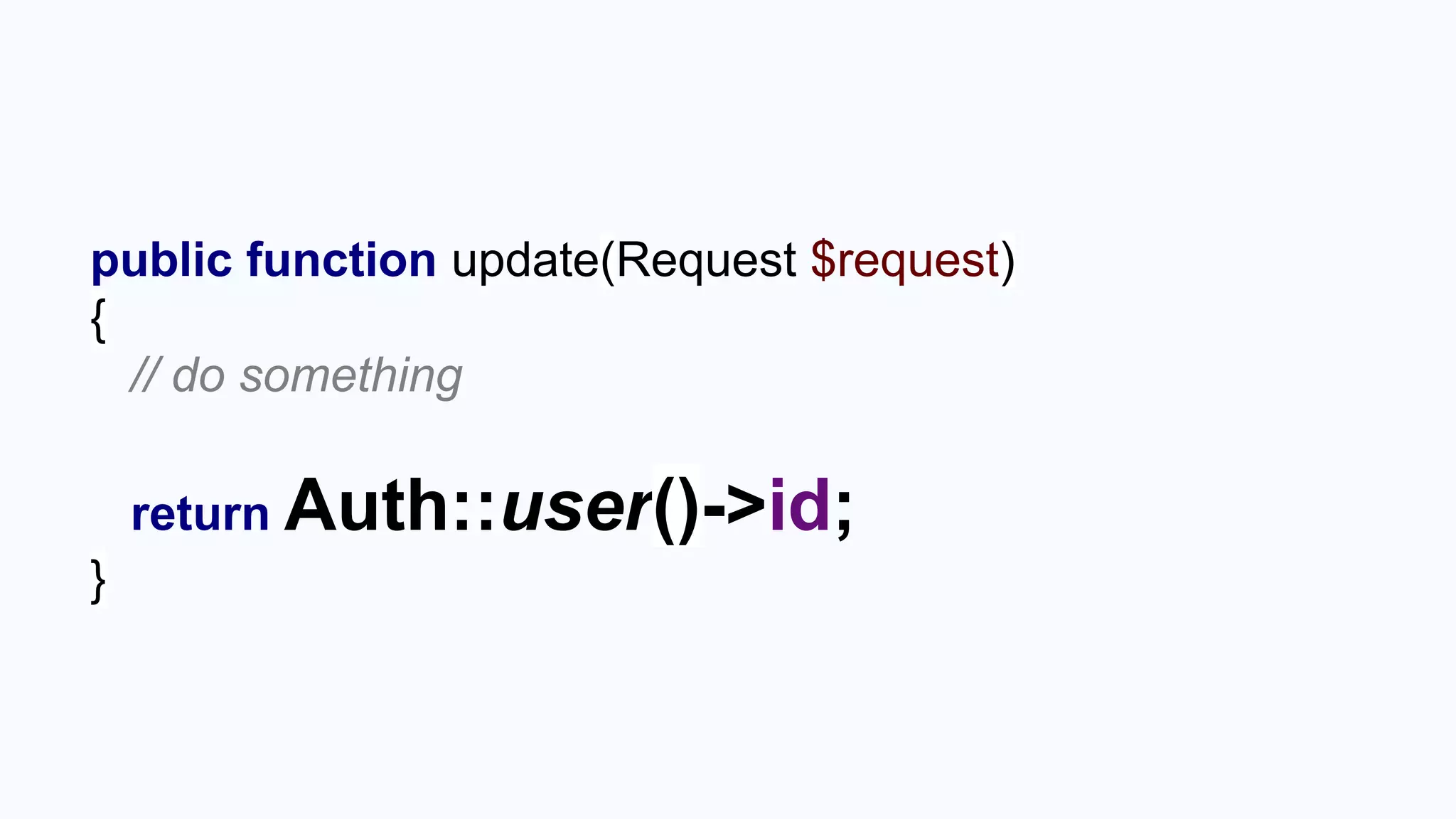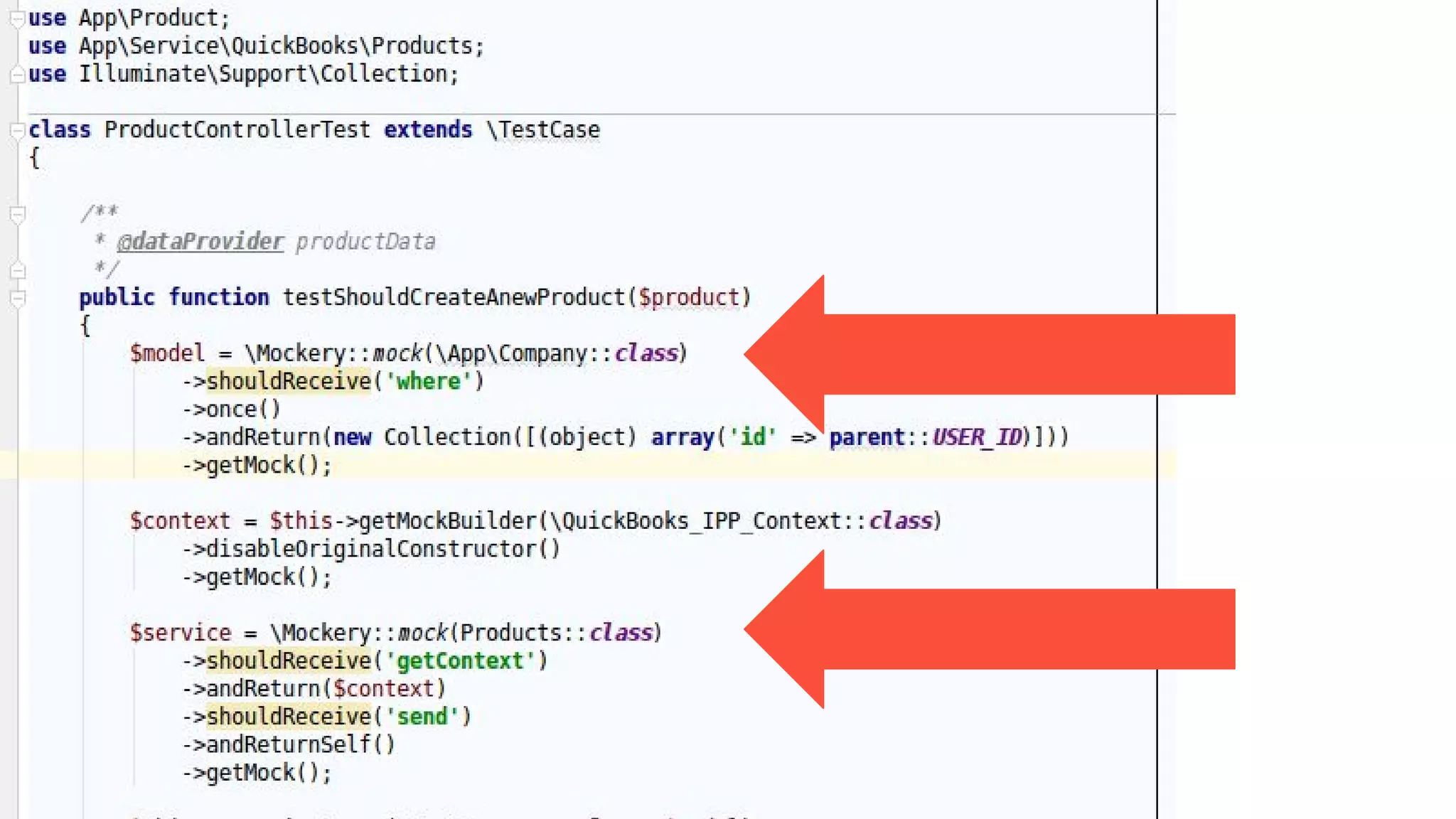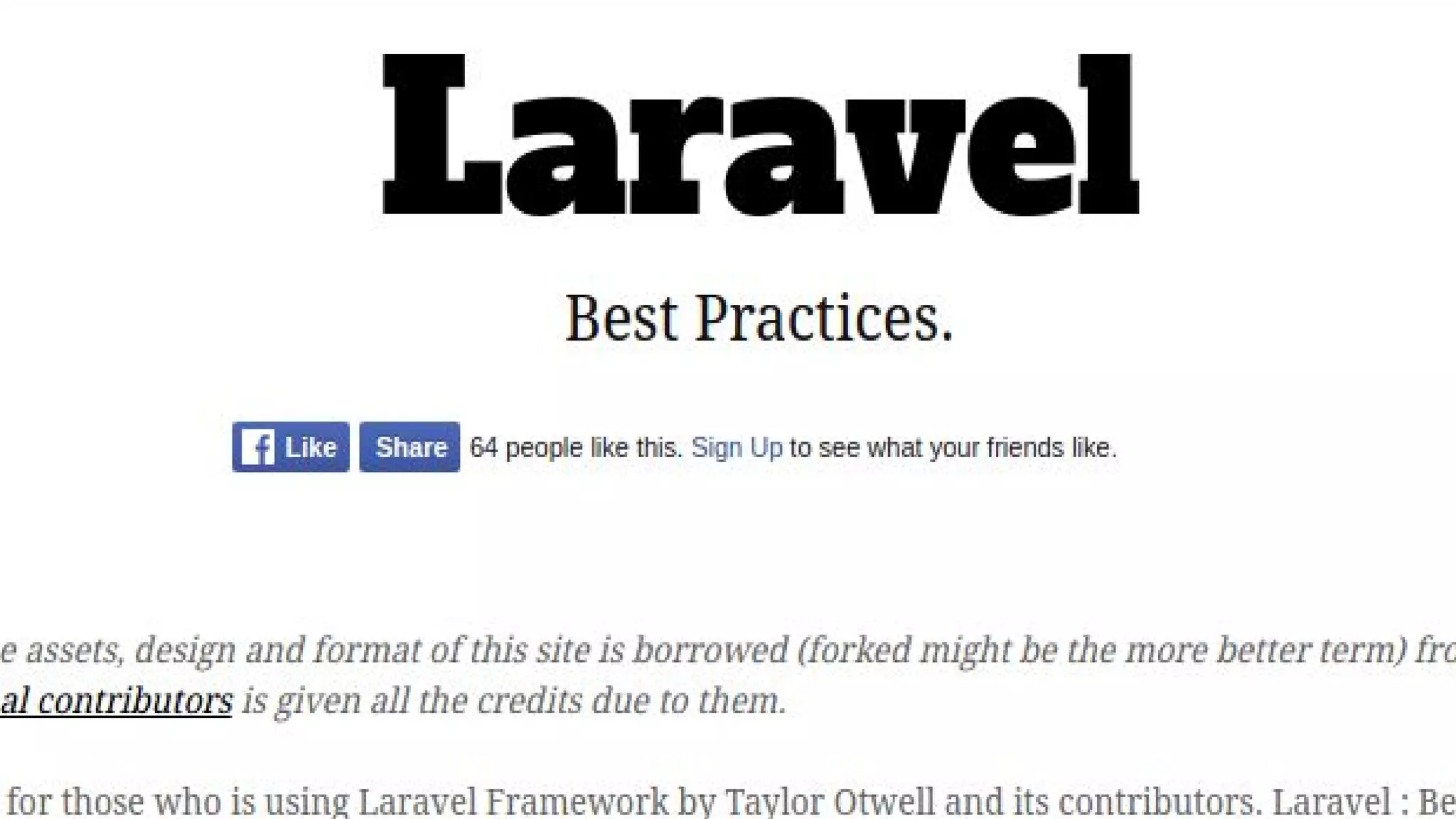The repository pattern is a design pattern that organizes data access logic and separates it from business logic, allowing for easier management and access to data objects. It enables business logic to operate without the complexities of the underlying data access architecture. The document also includes code snippets pertaining to creating and managing deals and invoices in a Laravel application.


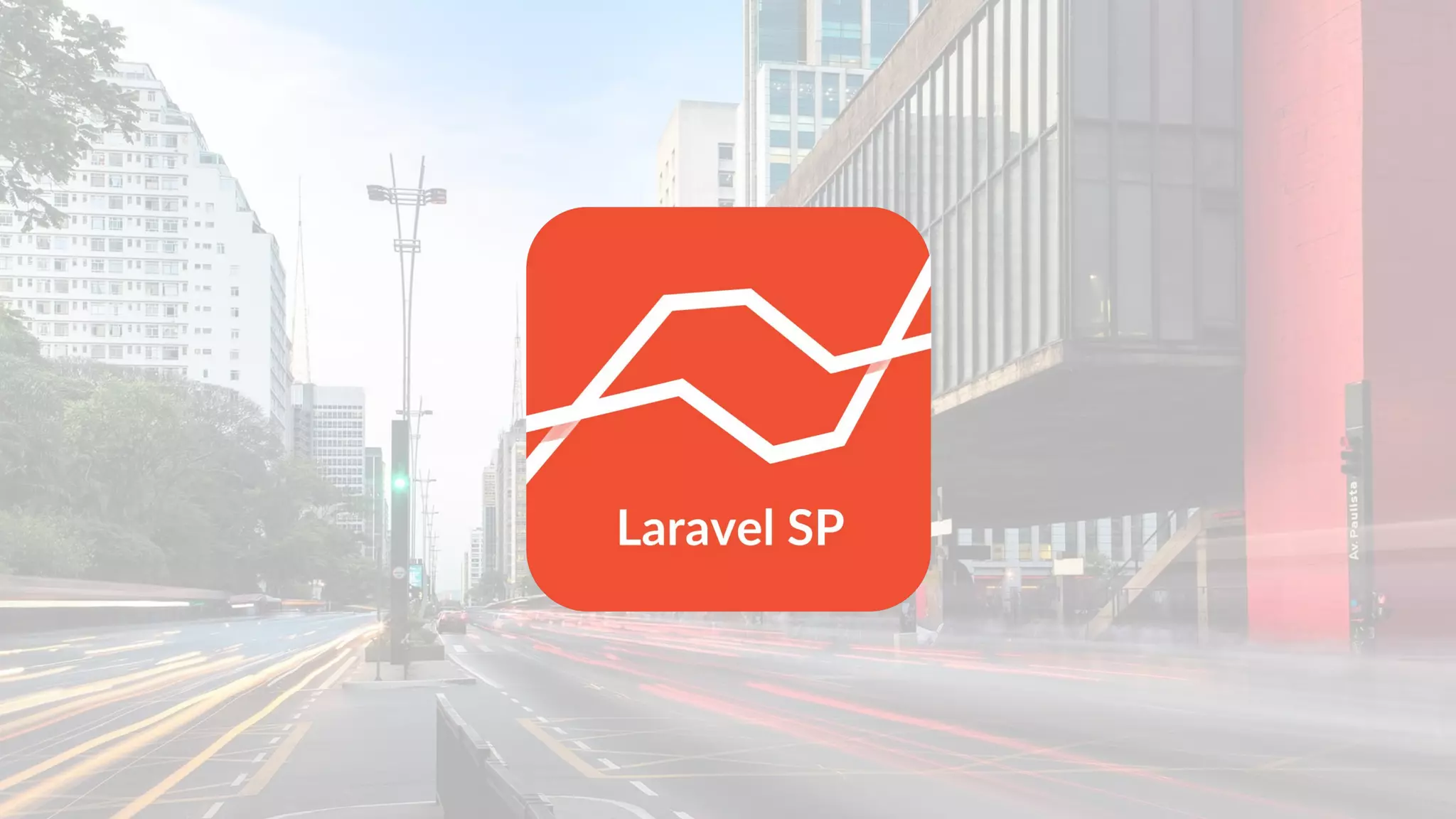


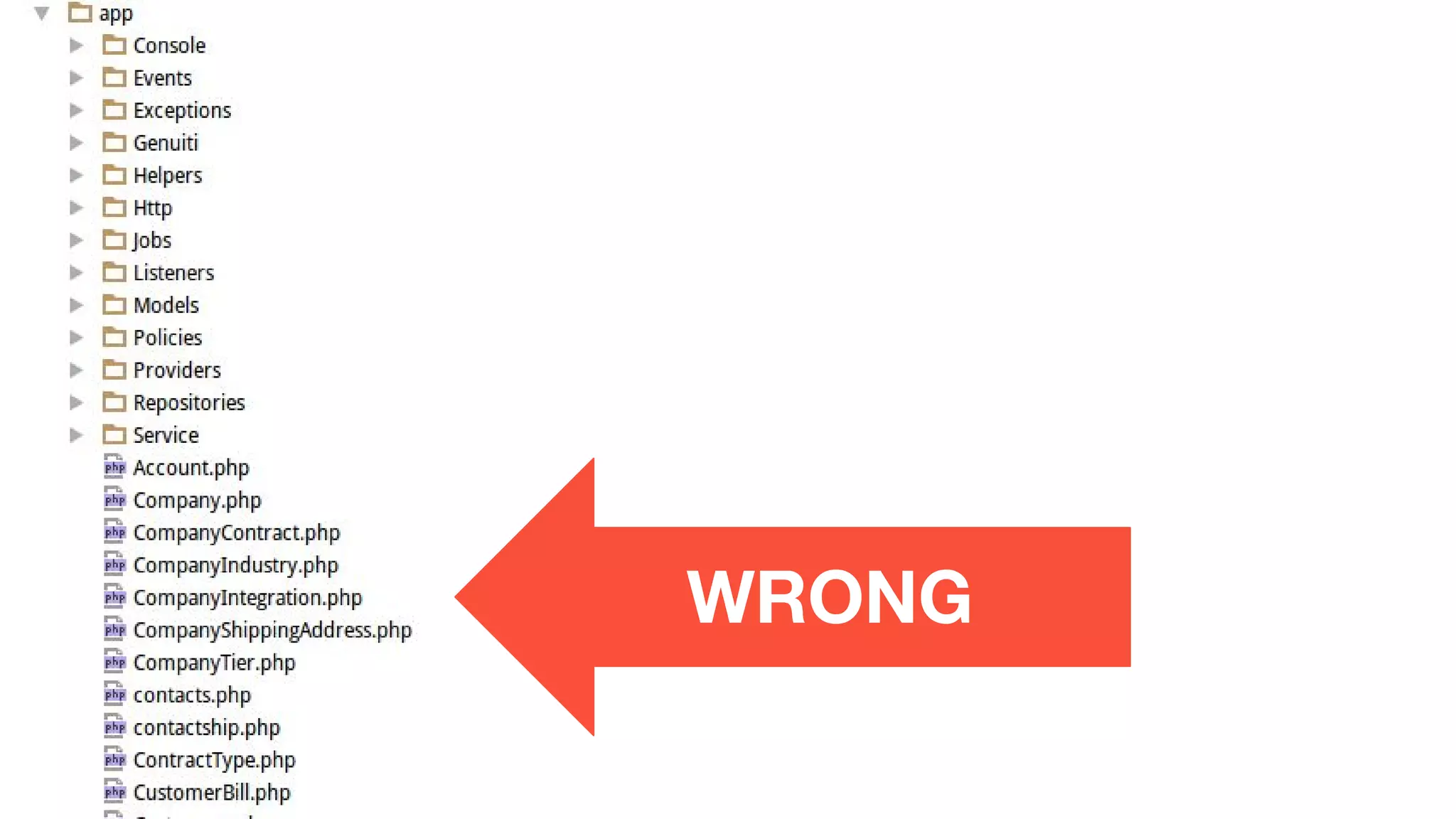


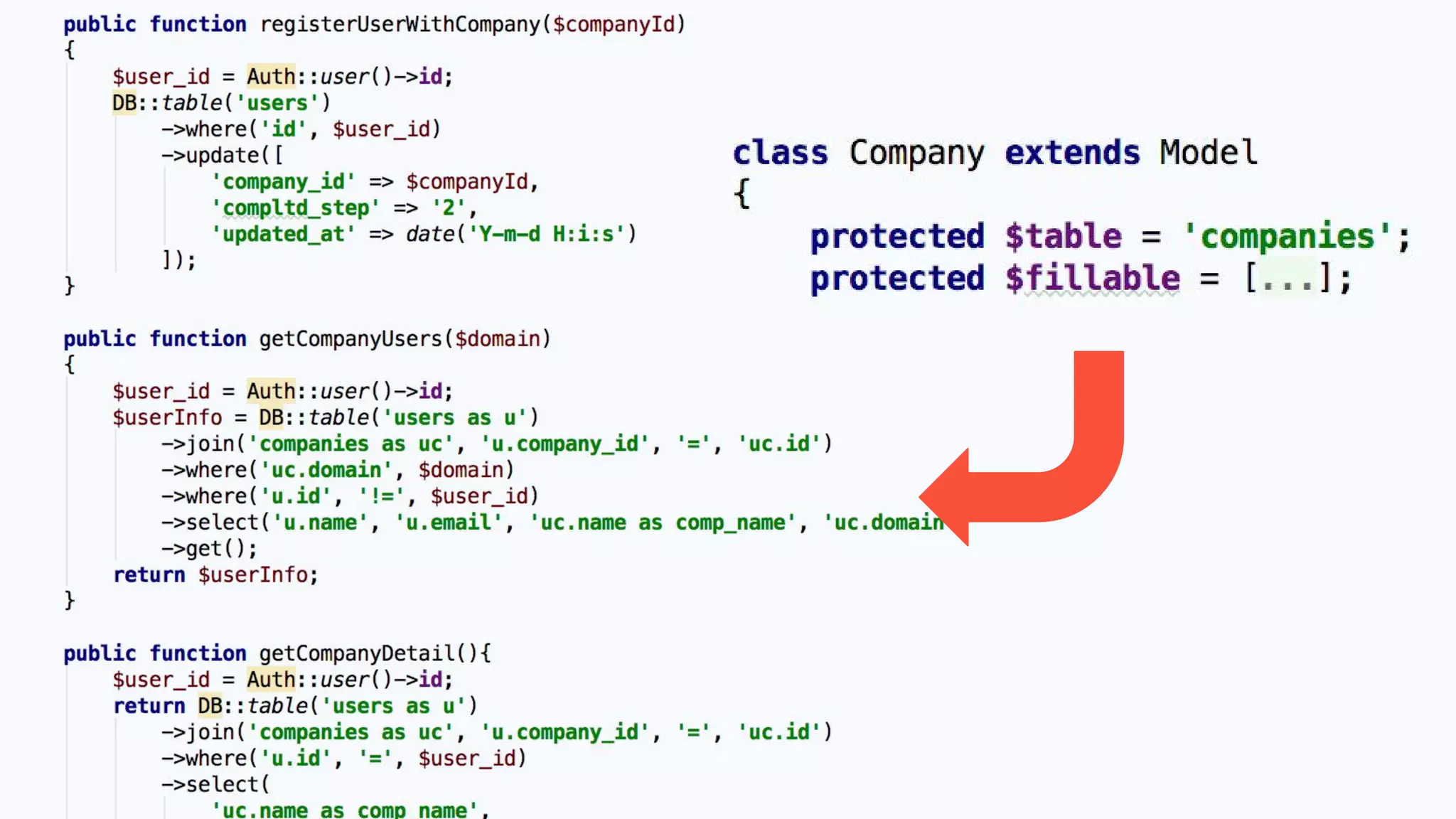
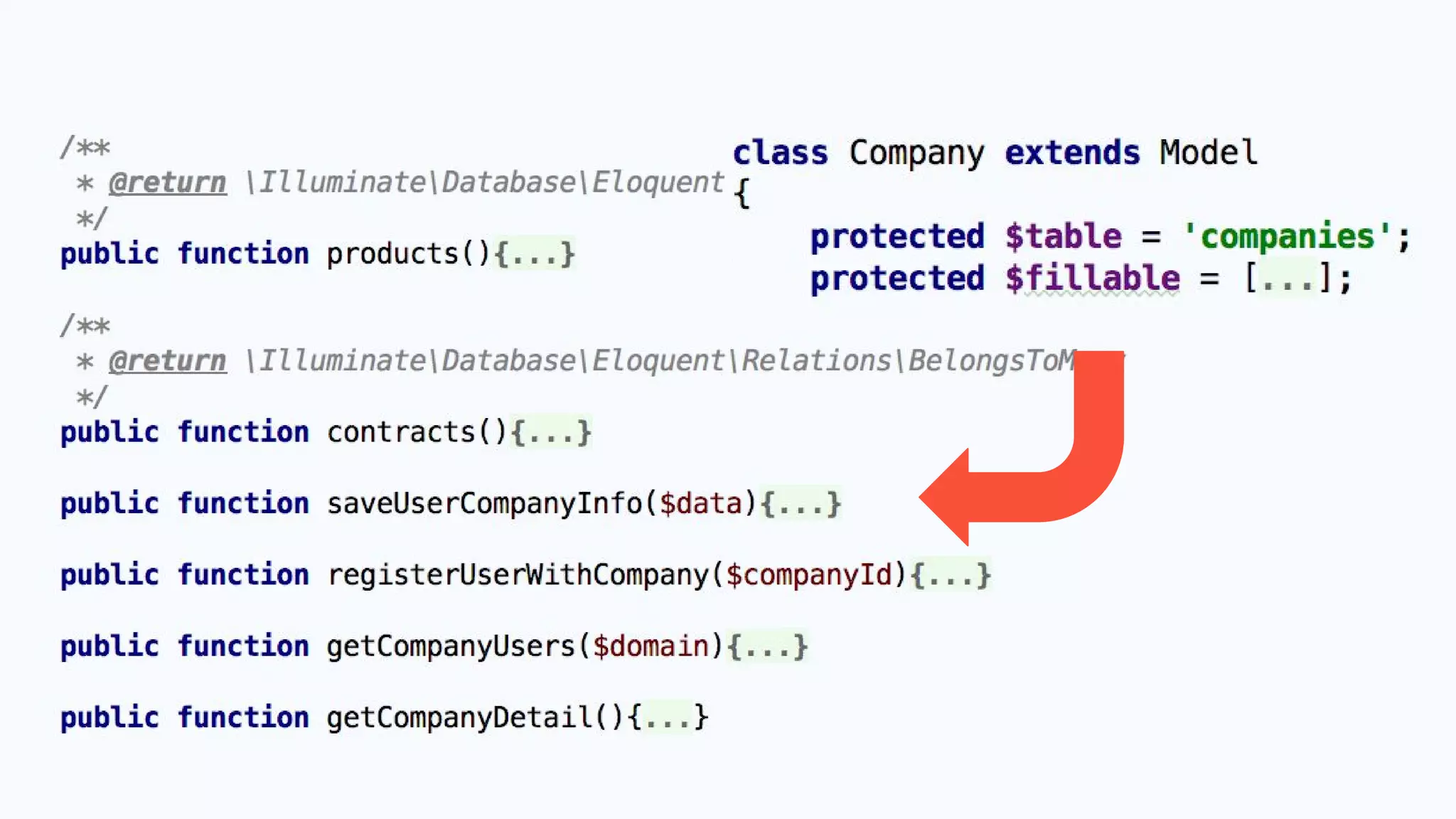
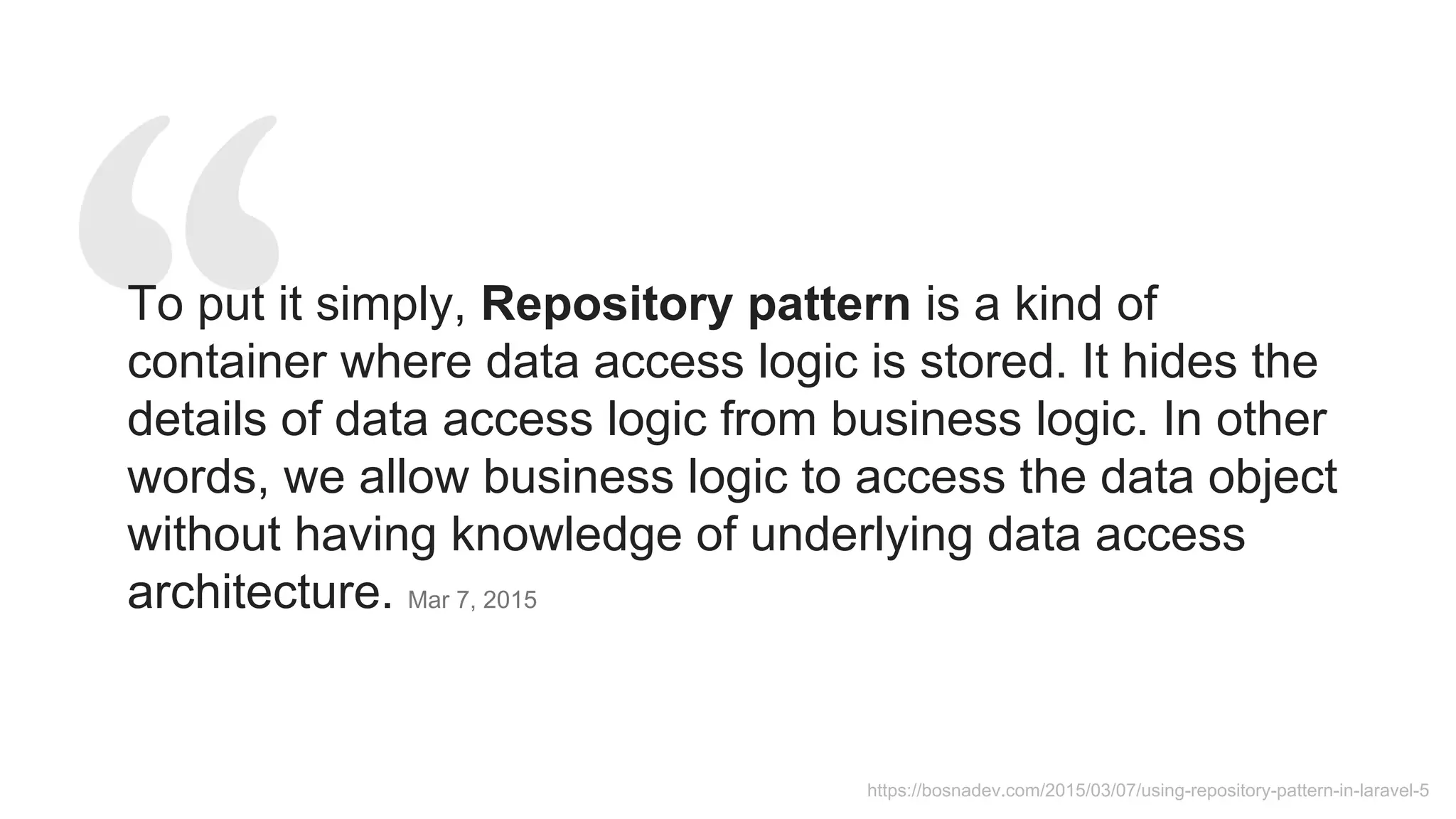
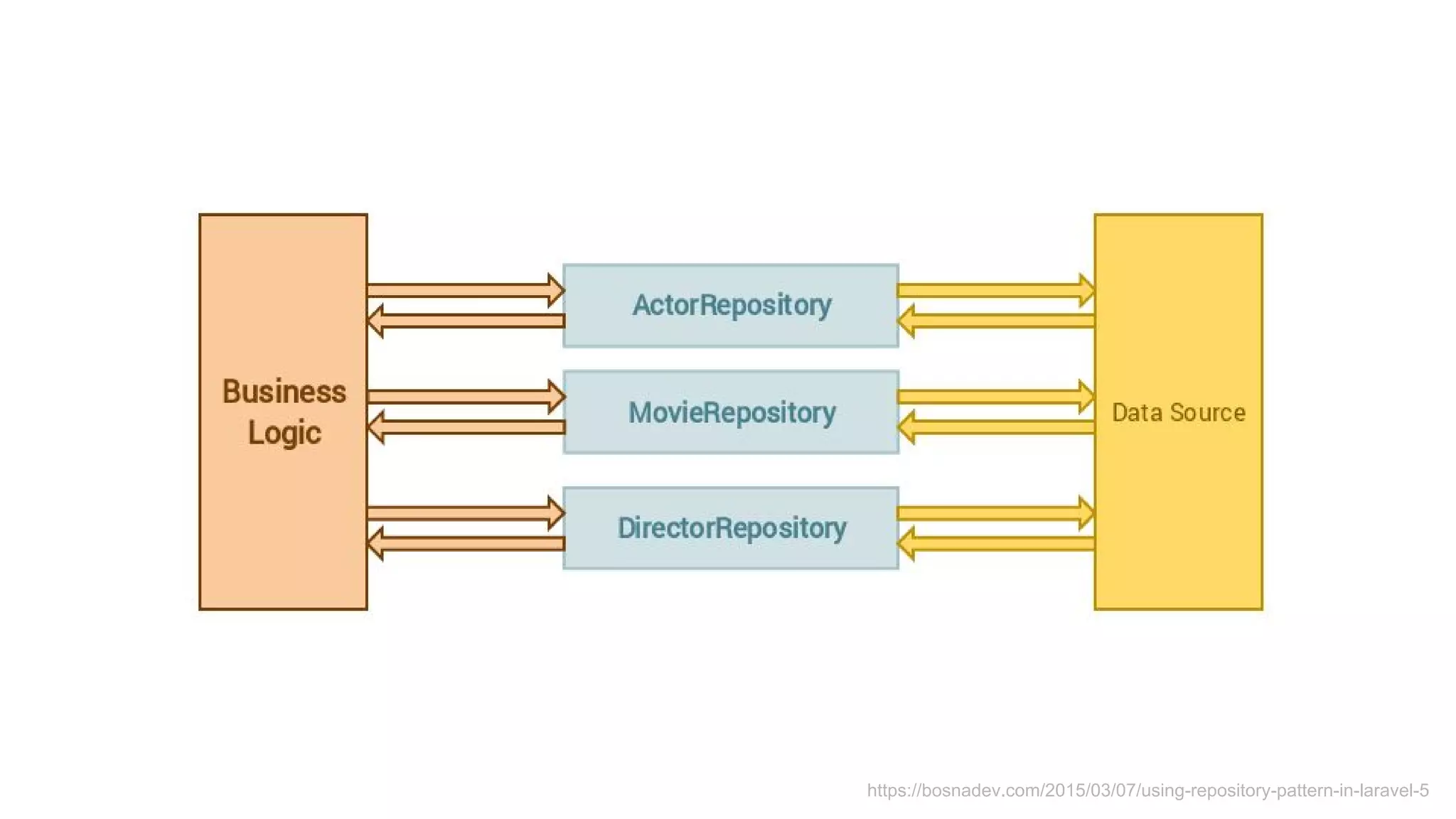
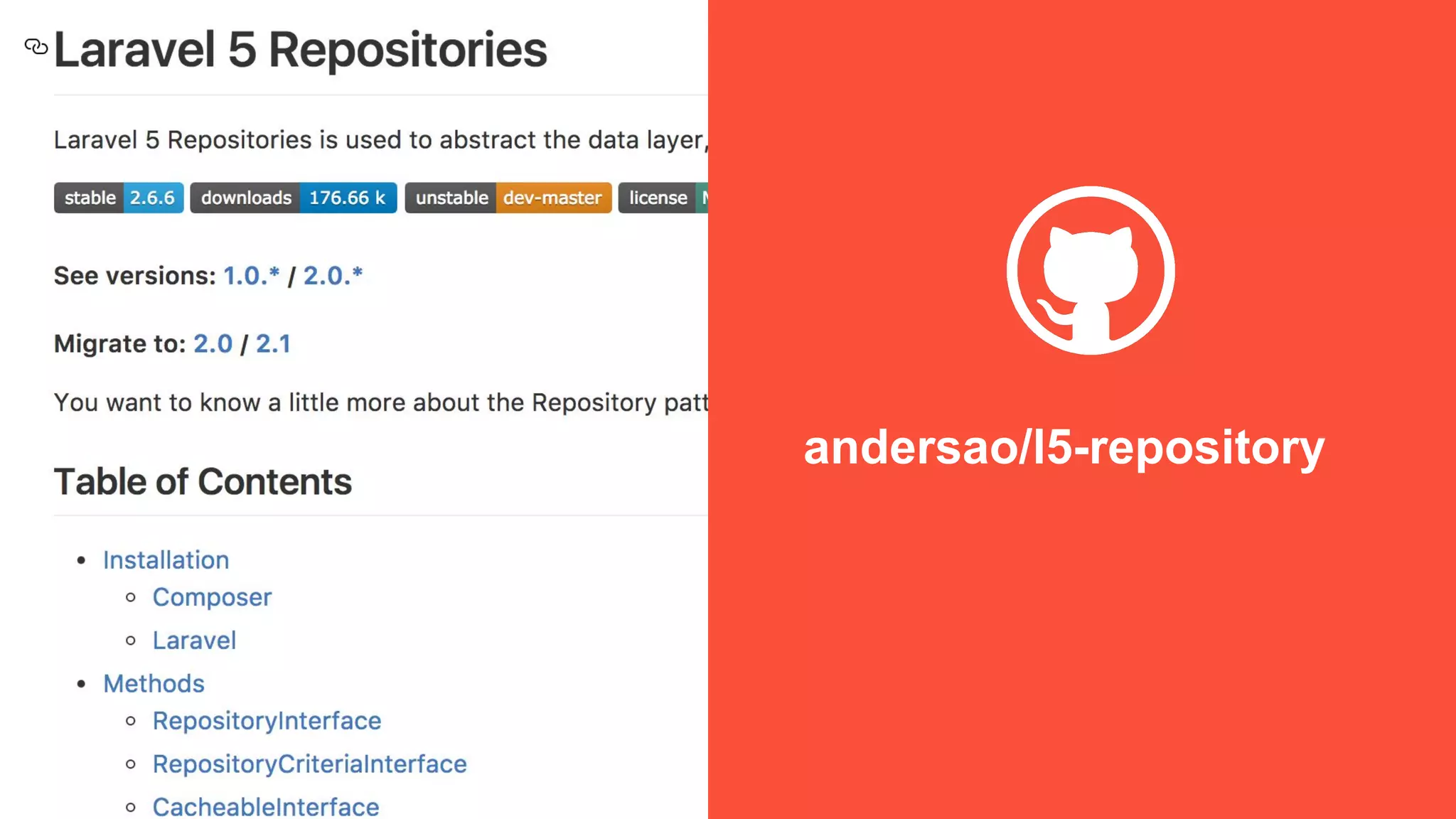
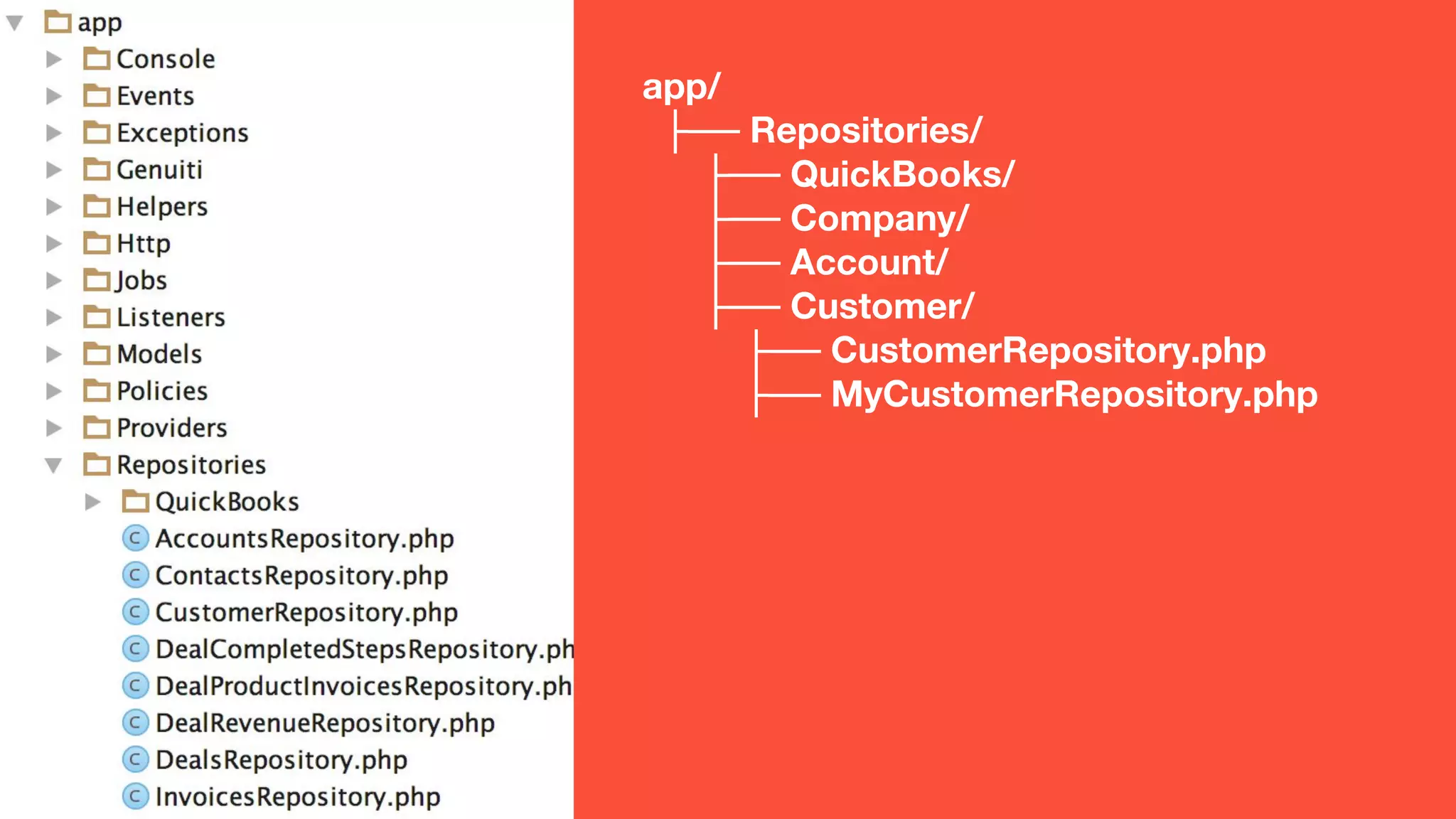
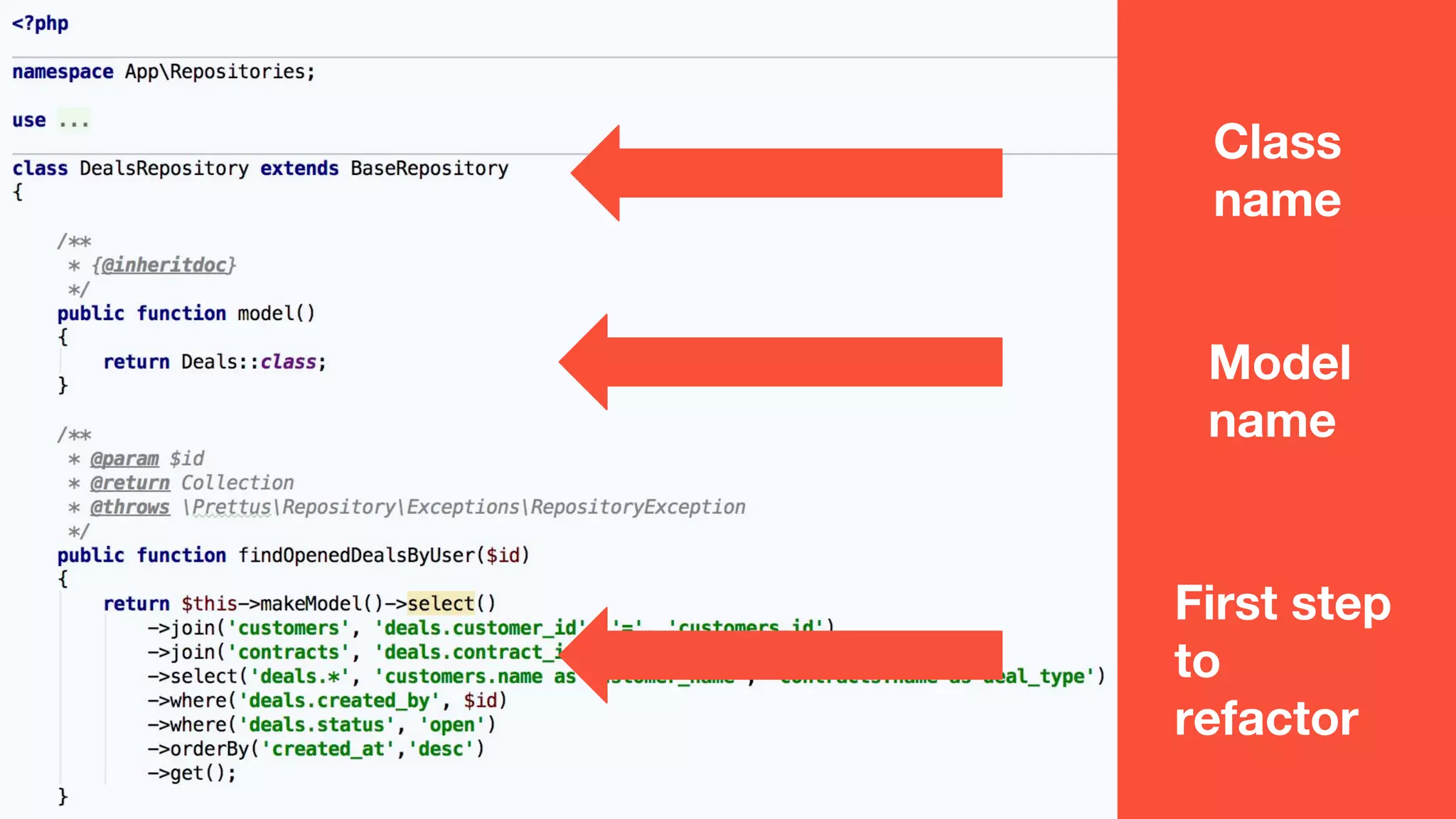
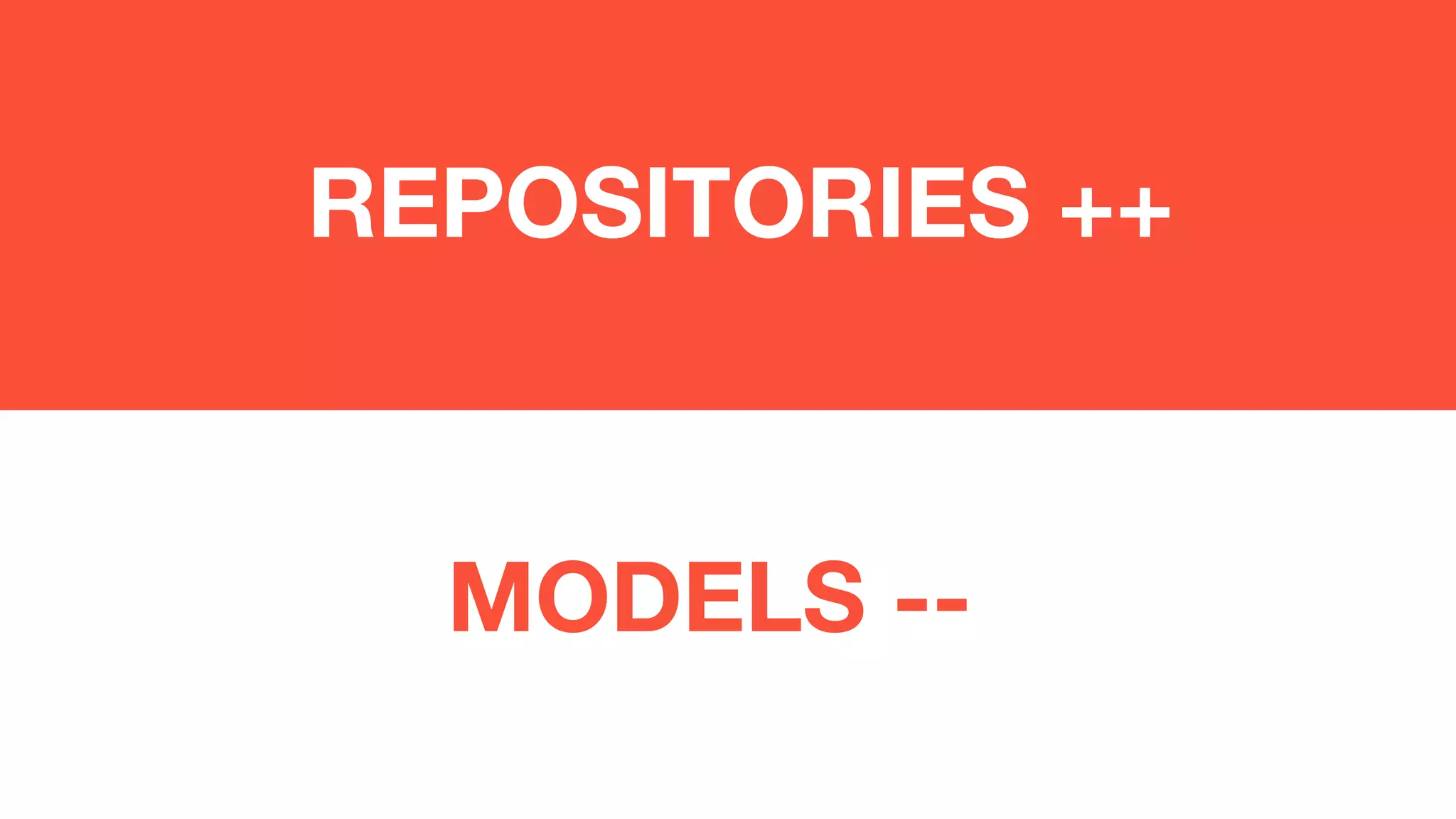
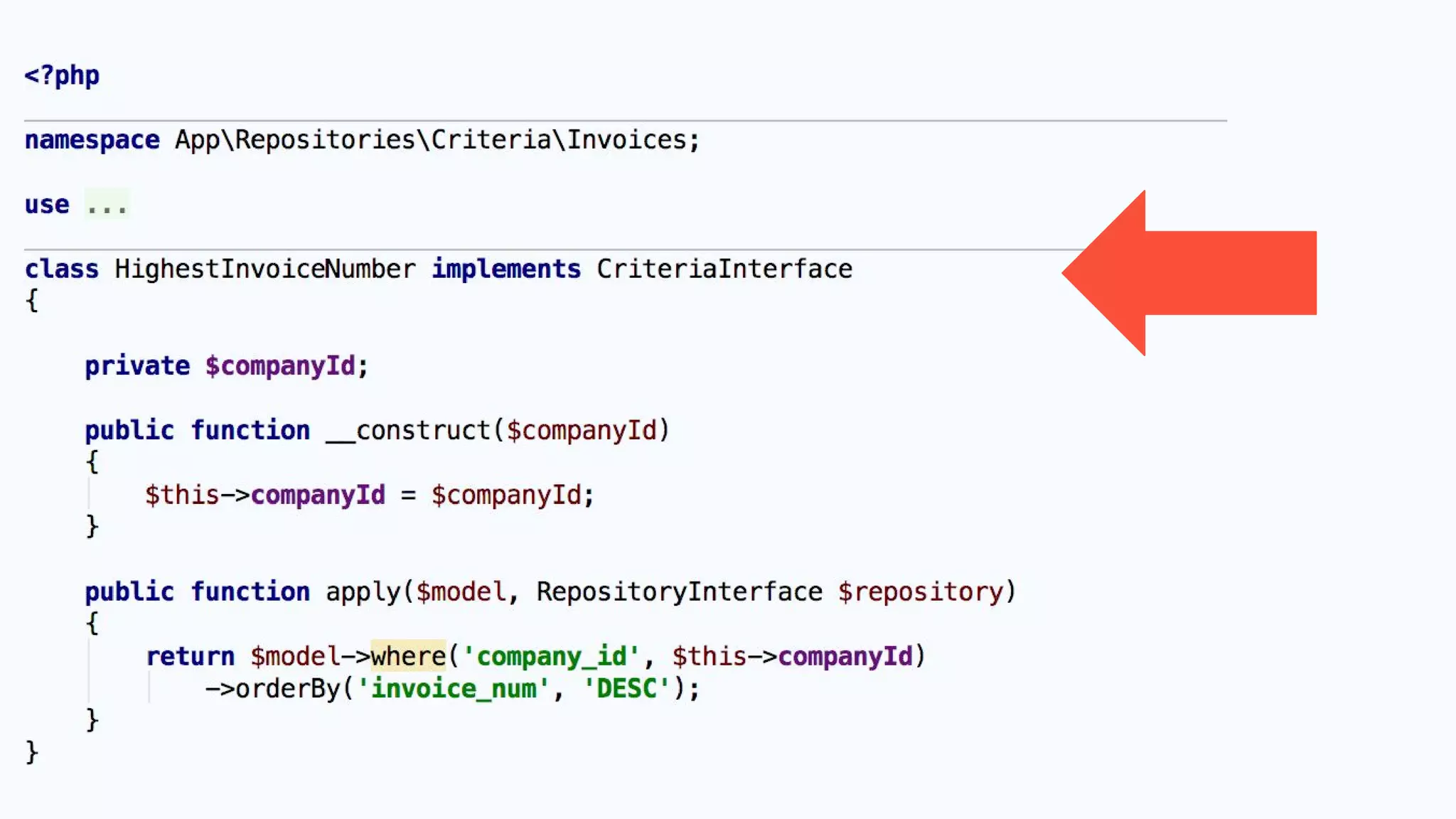
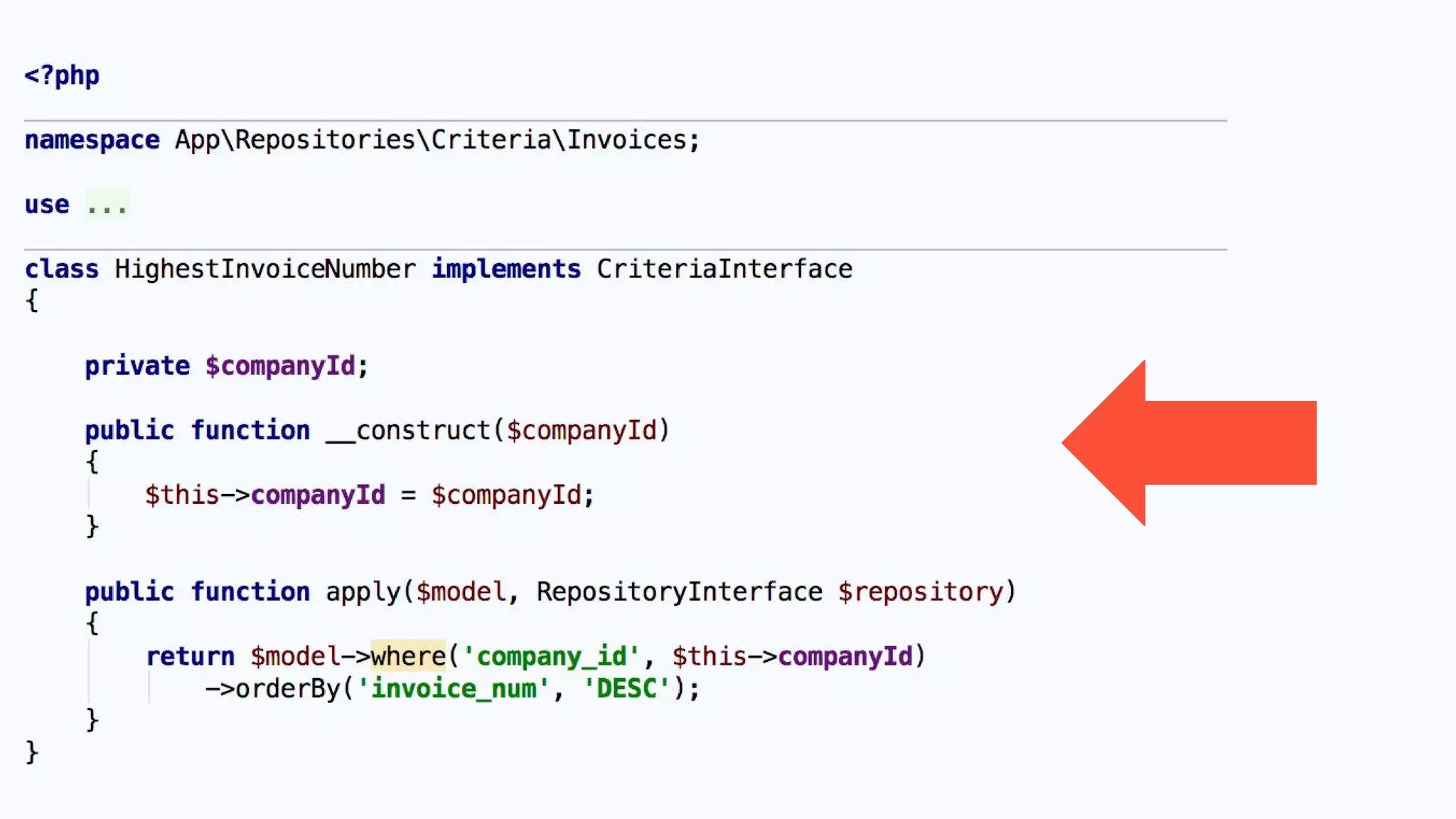
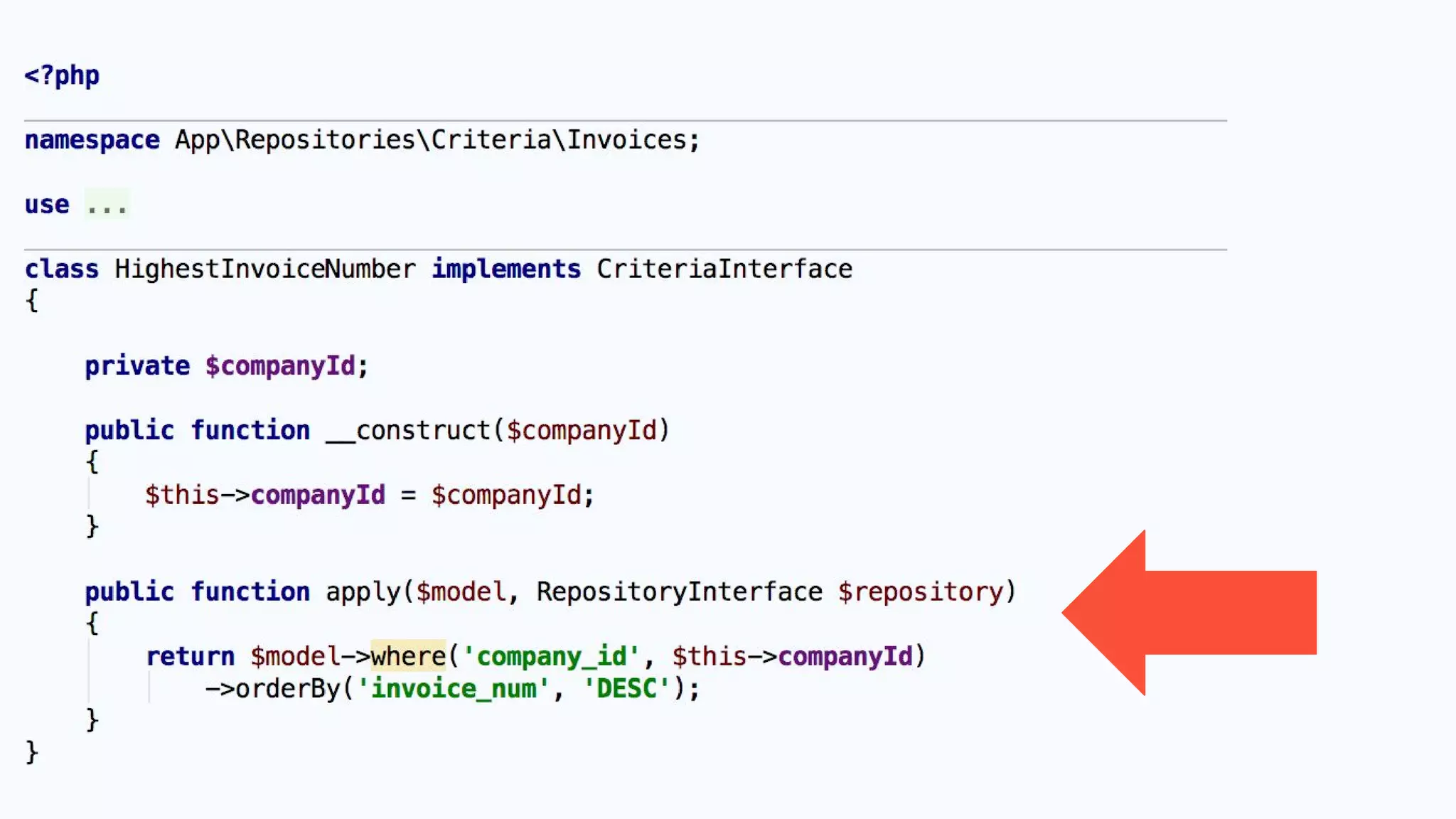
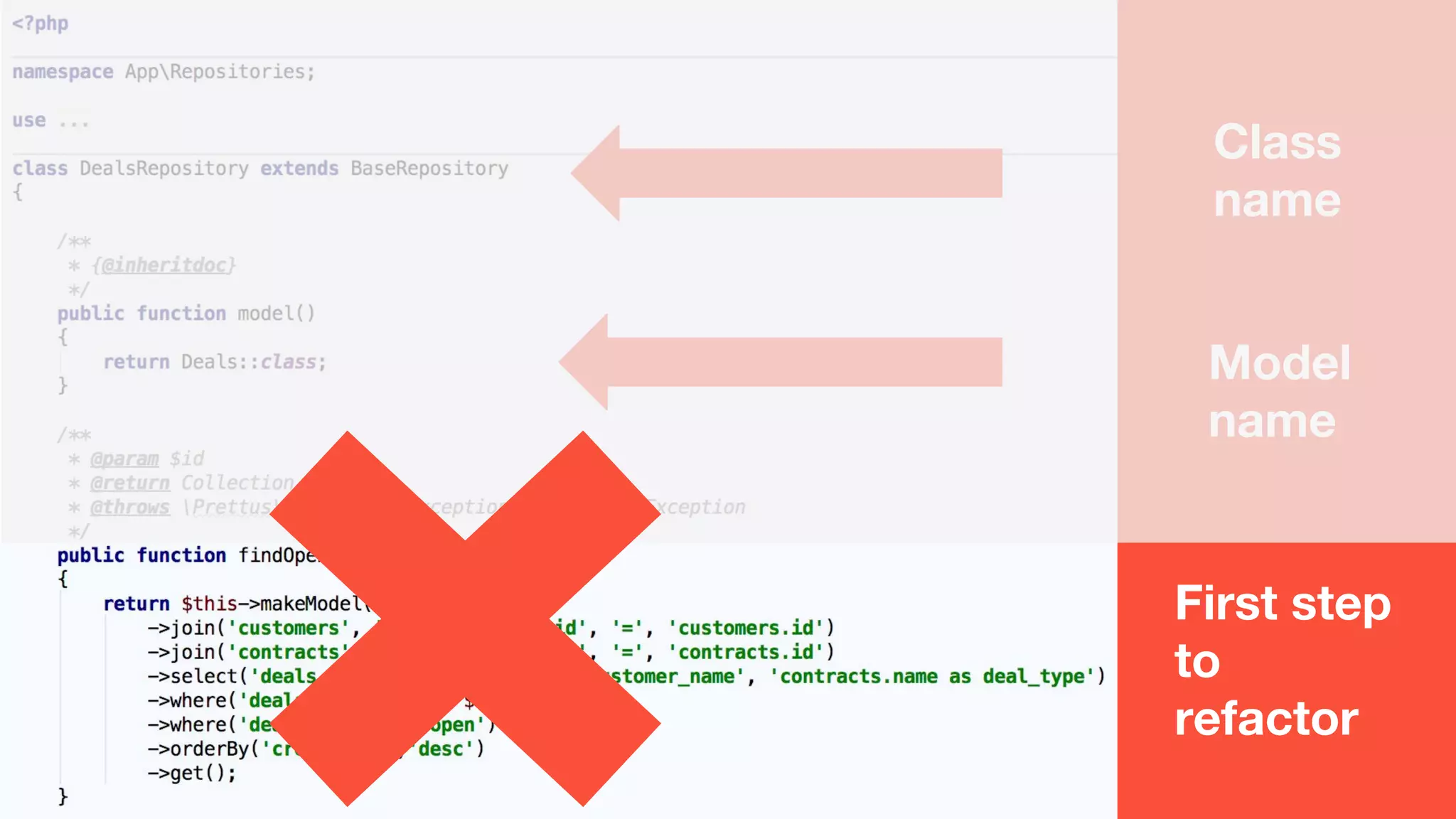
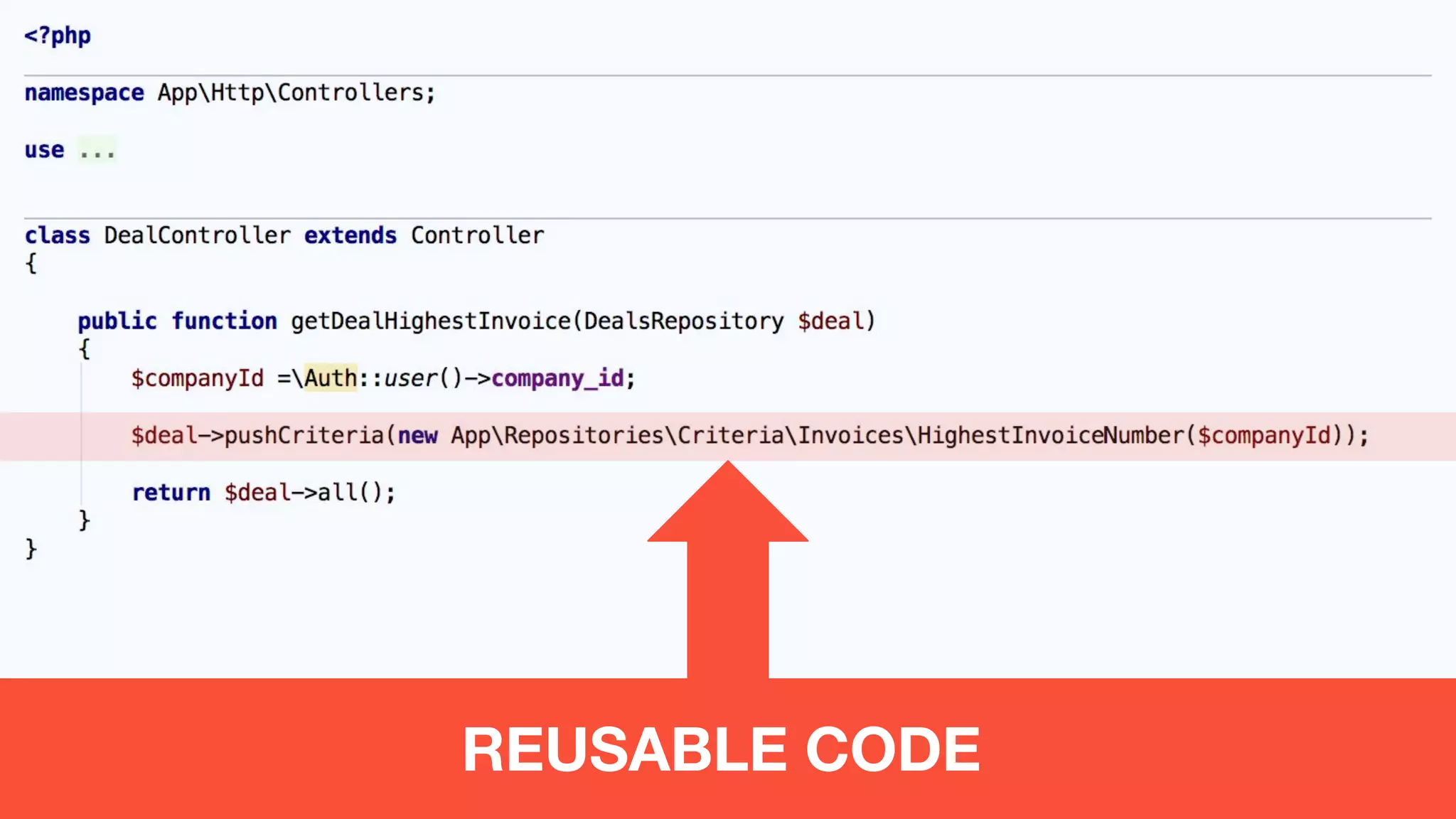
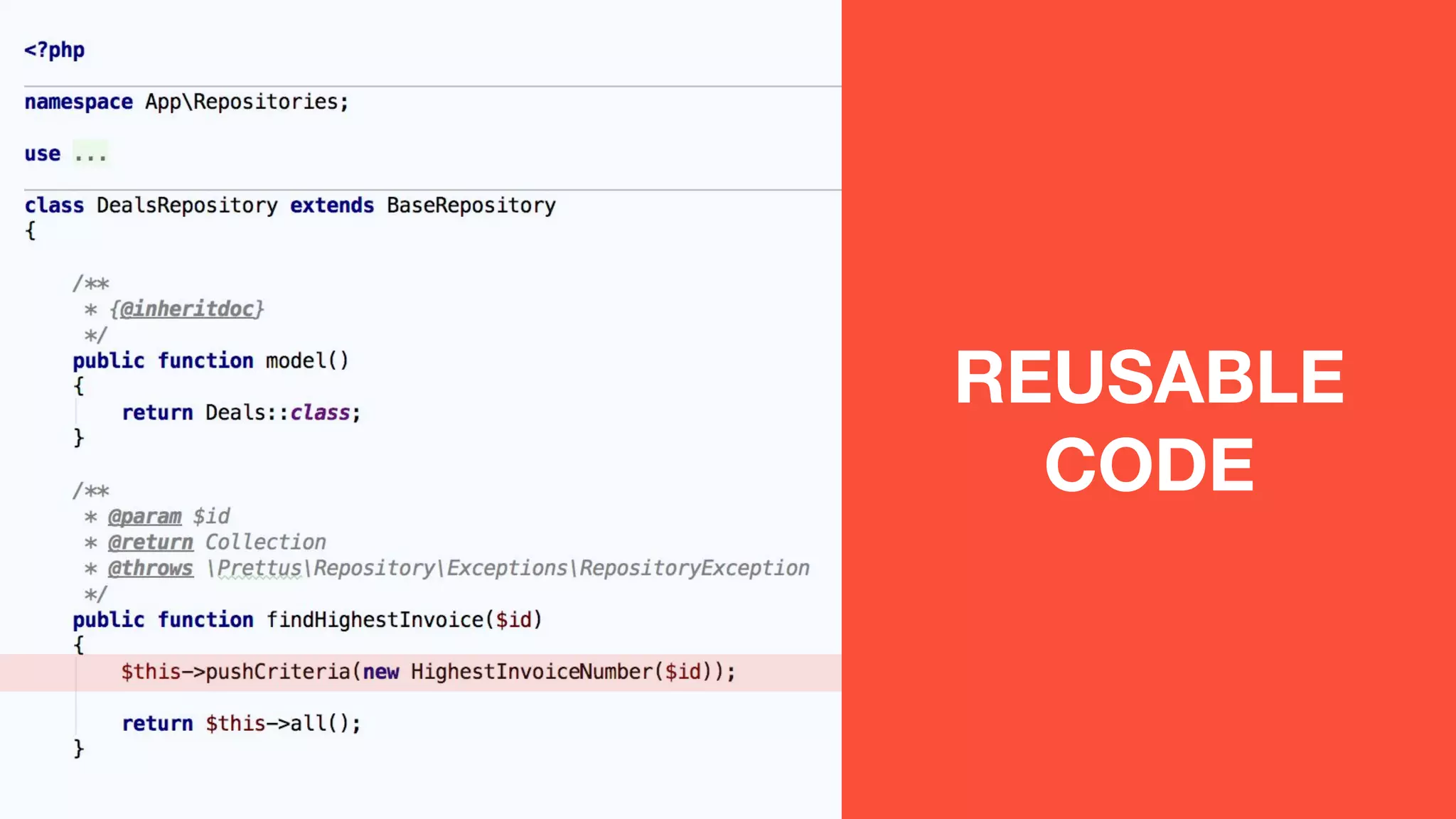

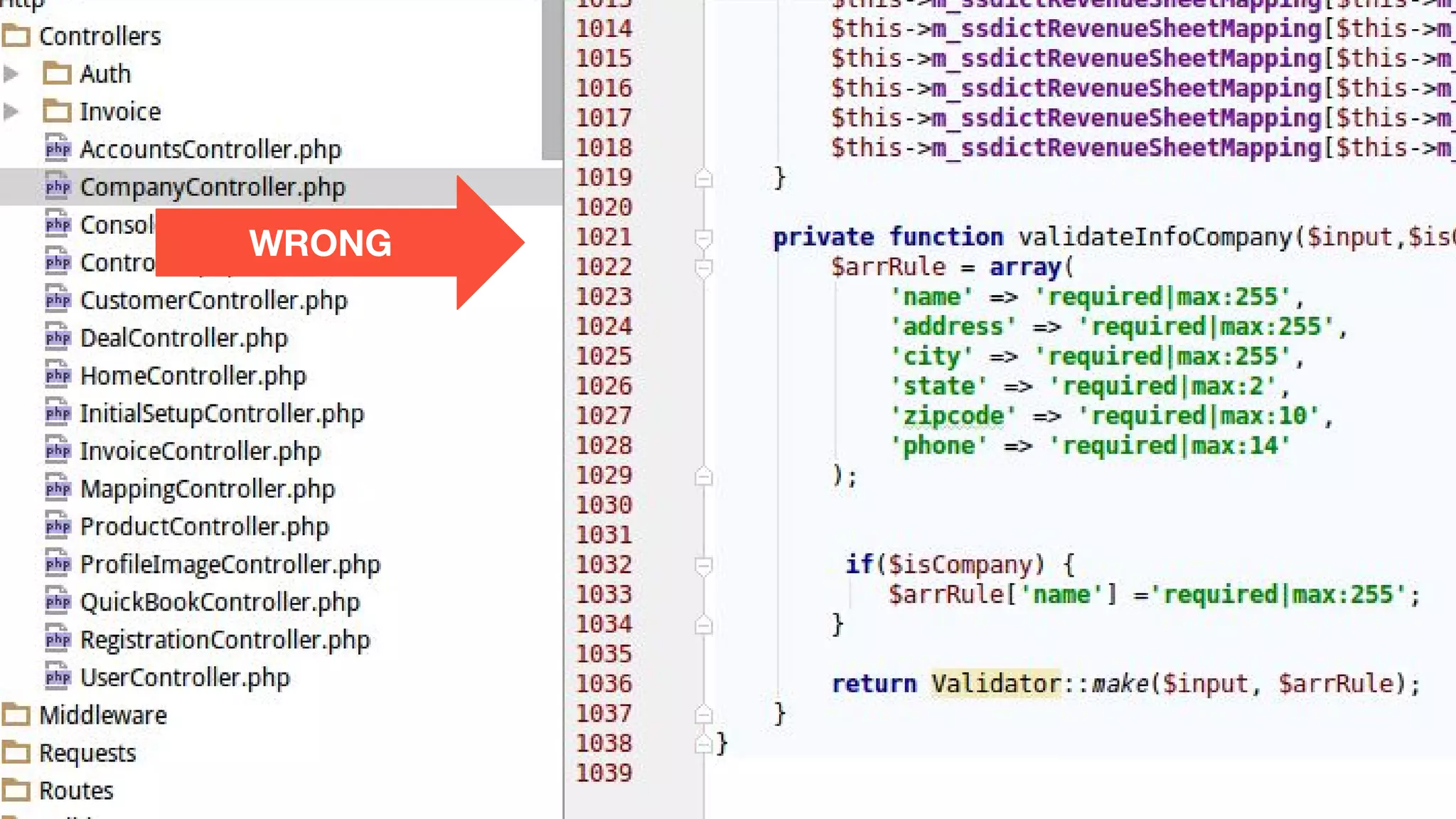
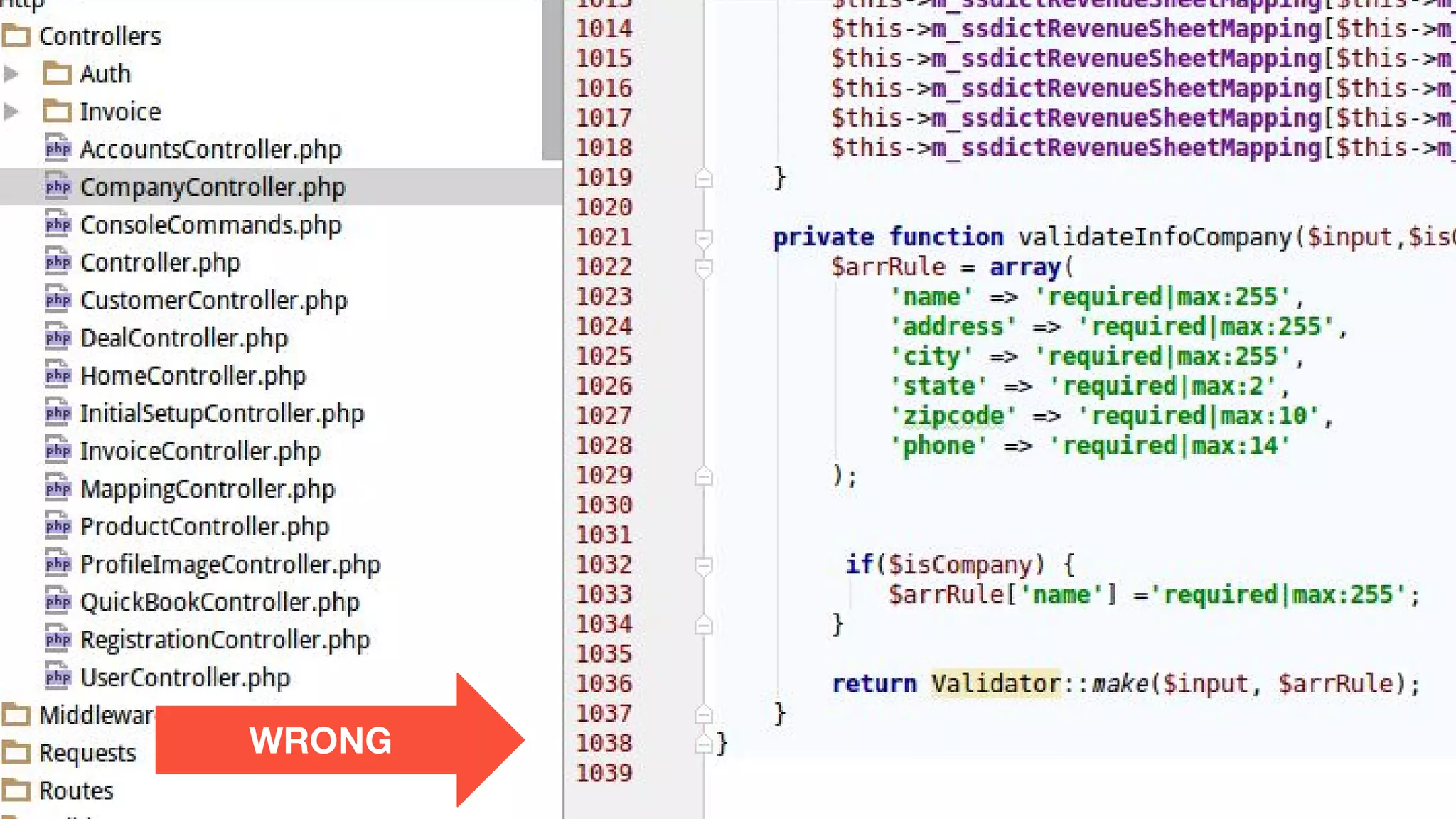

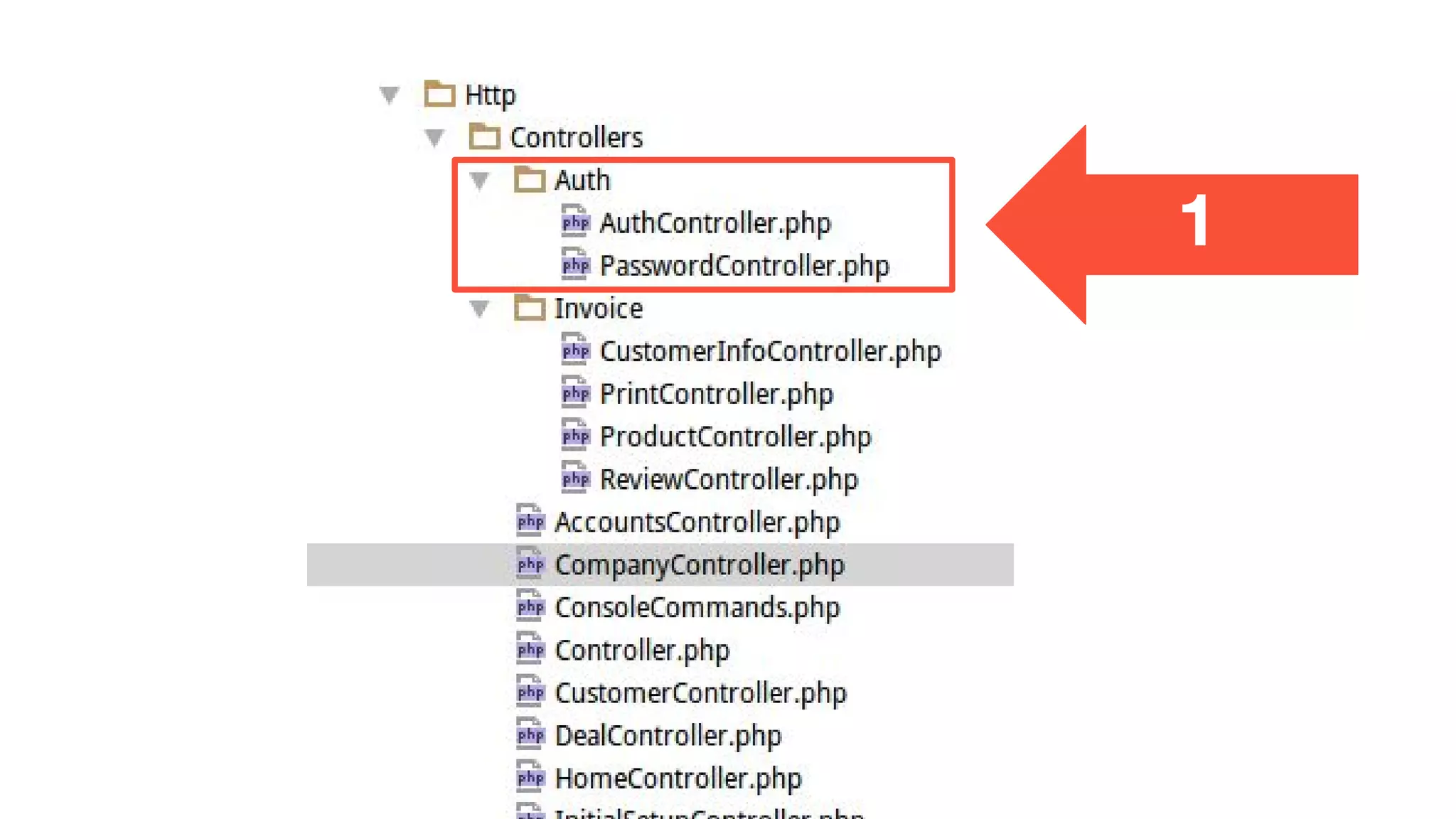
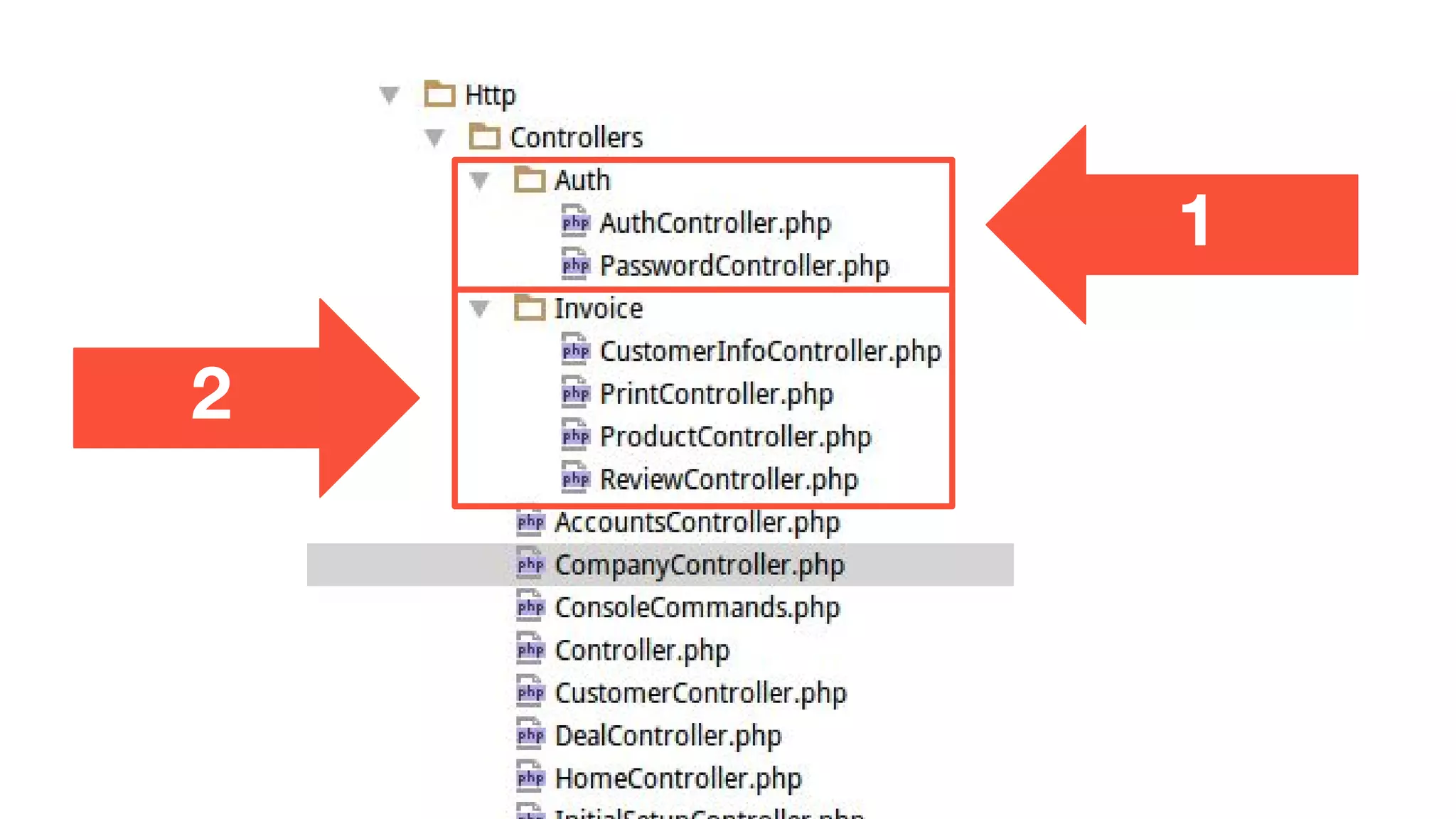
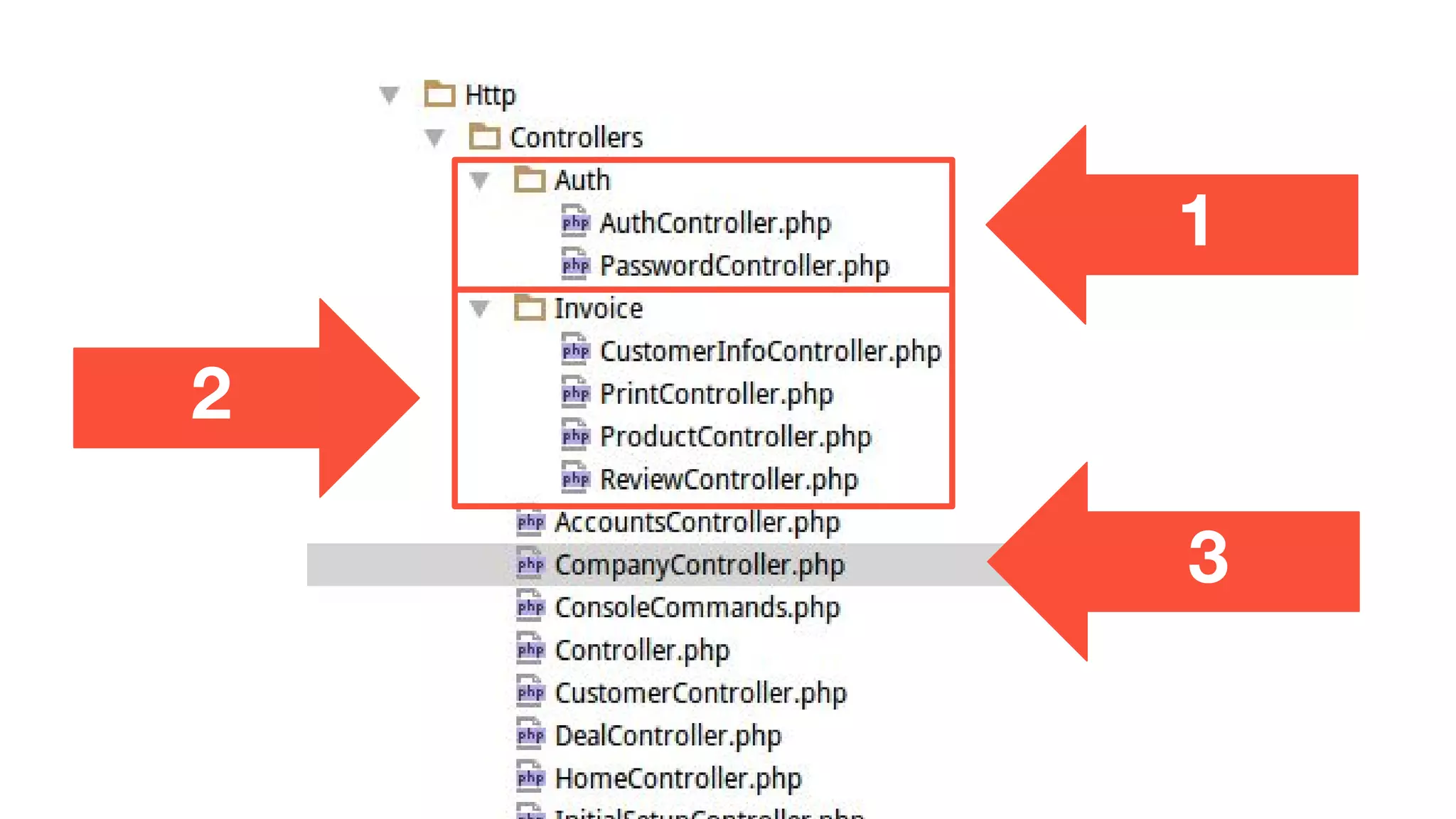

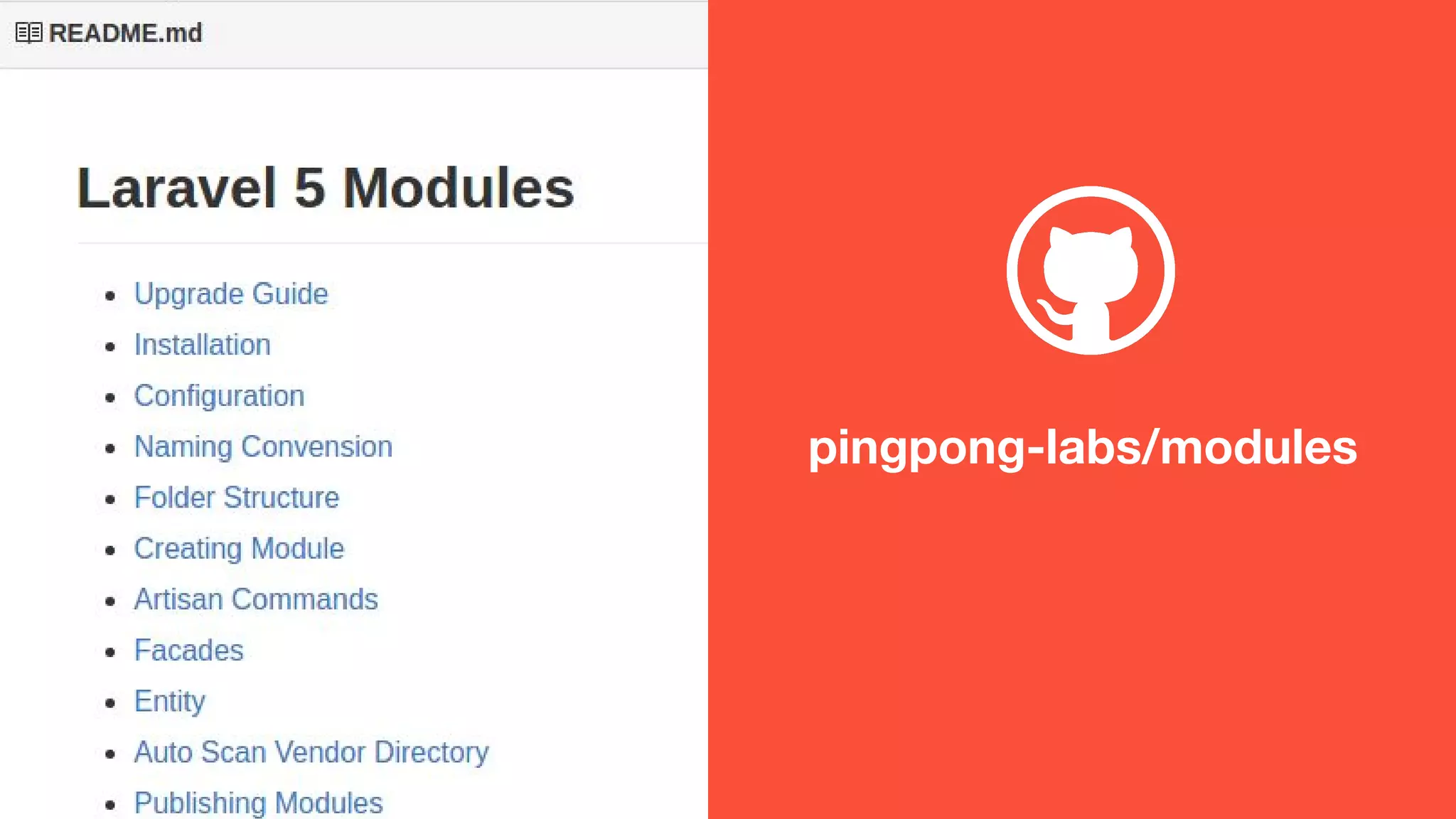
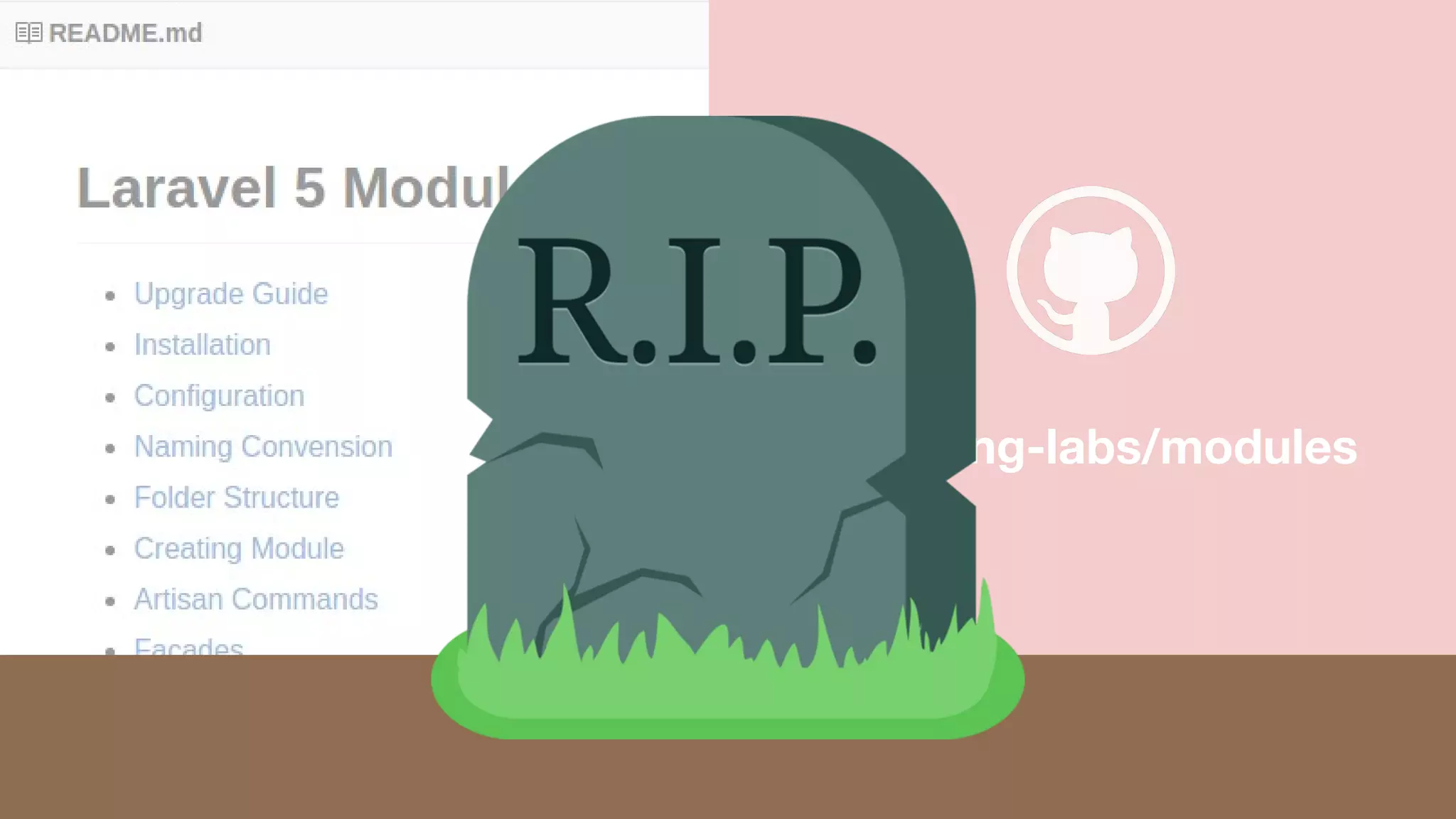
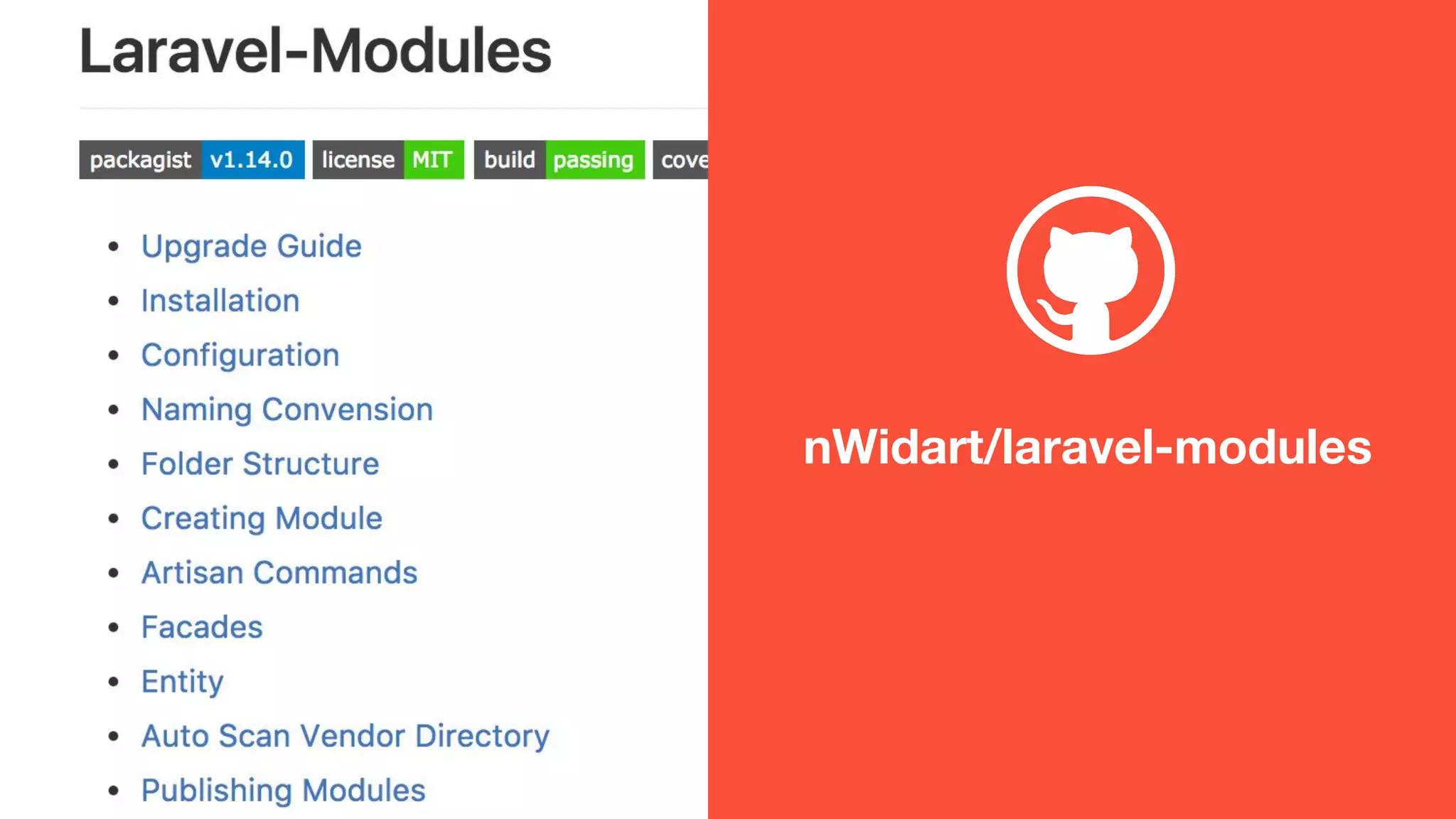
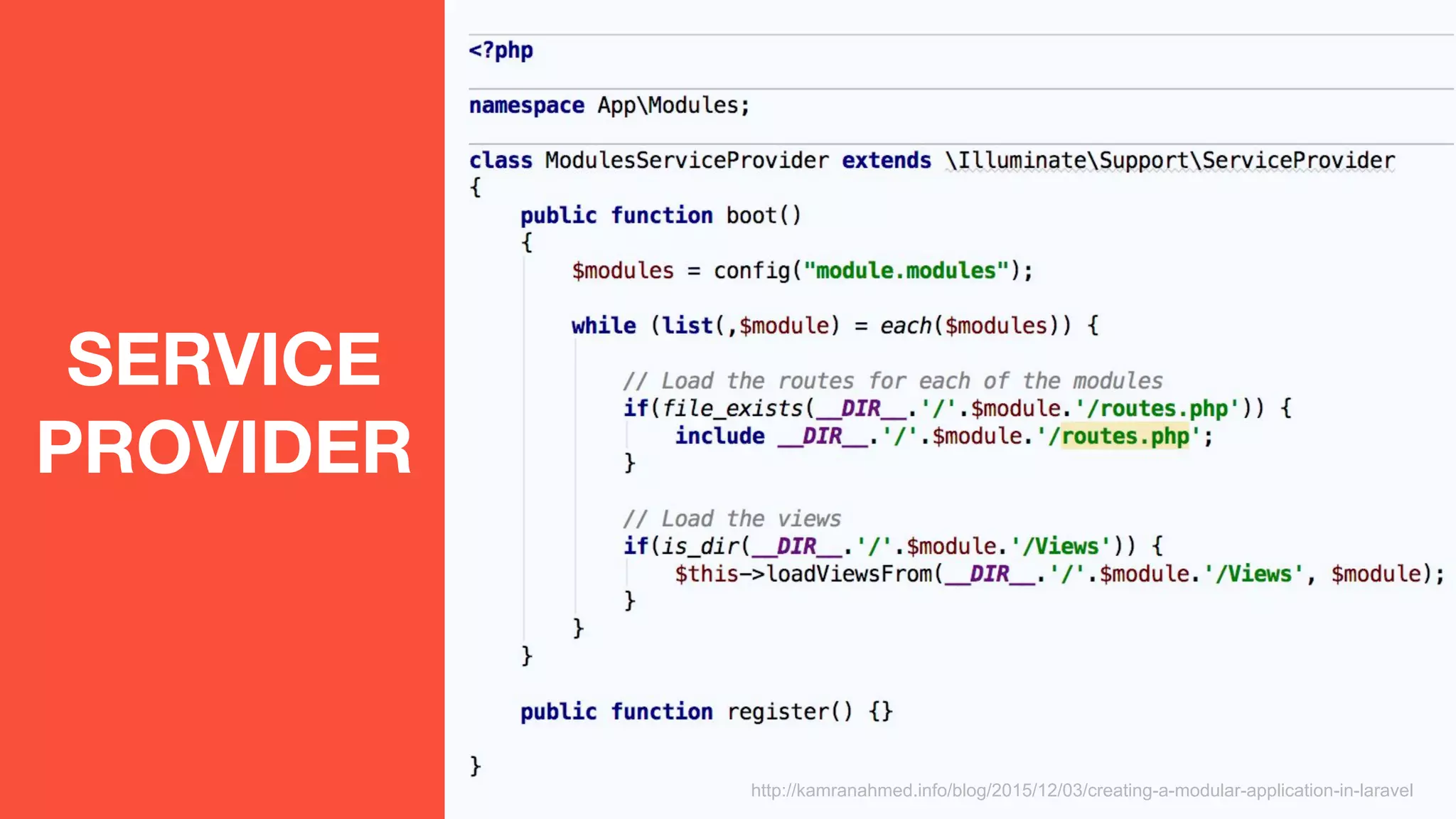
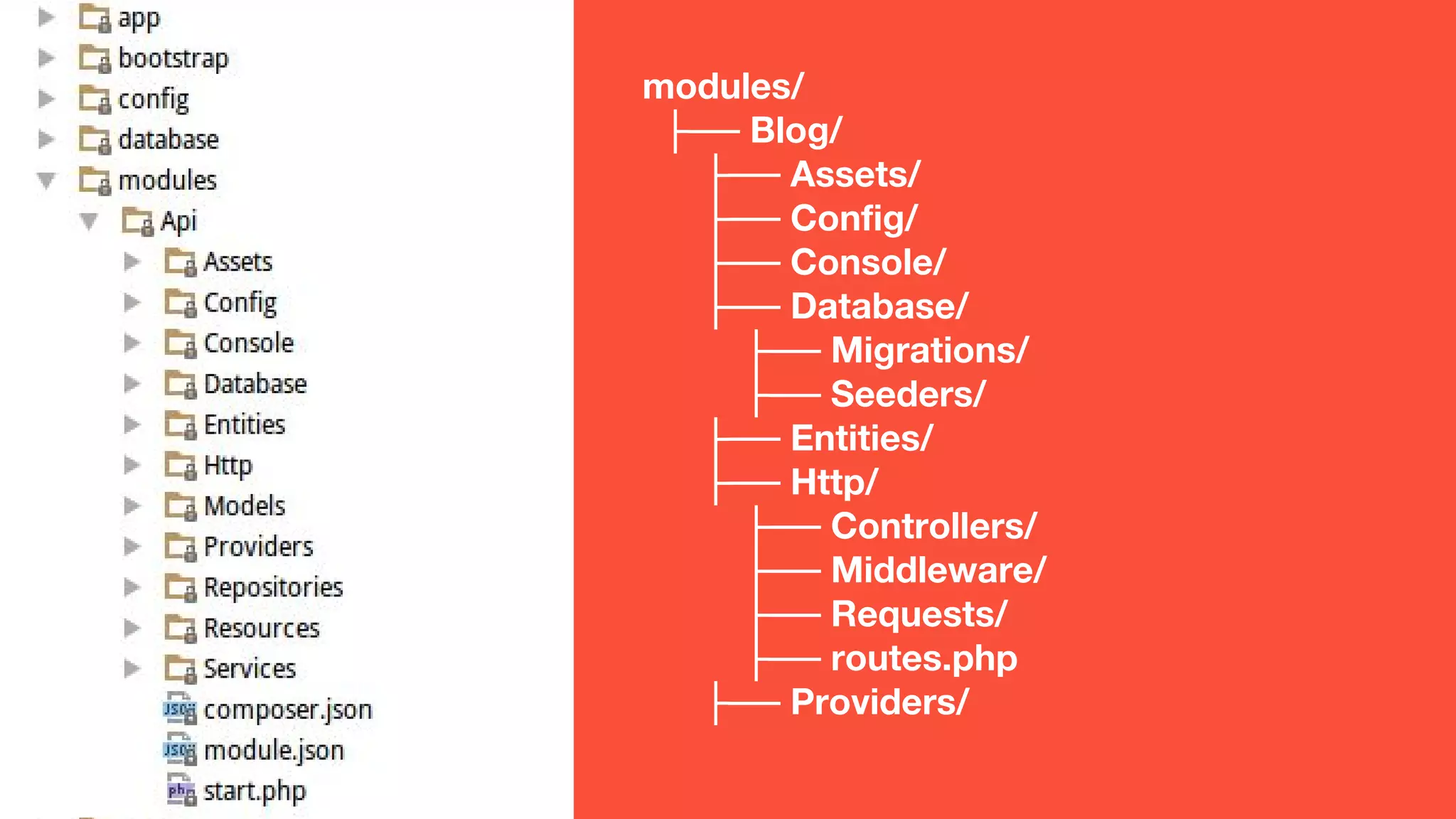

![public function newDeal(Request $request) { $data = $request->all(); // some stuff $page = "new_deal/new_deal_" . $data['page']; return view($page, [ 'active_step' => $data['page'], 'template_step' => 'app_deal_steps', 'origin' => 'new_deal', 'title' => 'New Deal', 'customers' => new AppDeals(), ]); }](https://image.slidesharecdn.com/laraveltherightway-phpconf2016-161204193046/75/Laravel-the-right-way-PHPConference-2016-37-2048.jpg)
![public function newDeal(Request $request) { $data = $request->all(); // some stuff $page = "new_deal/new_deal_" . $data['page']; return view($page, [ 'active_step' => $data['page'], 'template_step' => 'app_deal_steps', 'origin' => 'new_deal', 'title' => 'New Deal', 'customers' => new AppDeals(), ]); } X](https://image.slidesharecdn.com/laraveltherightway-phpconf2016-161204193046/75/Laravel-the-right-way-PHPConference-2016-38-2048.jpg)
![public function newDeal(Request $request, AppDeals $deal) { $data = $request->all(); // some stuff $page = "new_deal/new_deal_" . $data['page']; return view($page, [ 'active_step' => $data['page'], 'template_step' => 'app_deal_steps', 'origin' => 'new_deal', 'title' => 'New Deal', 'customers' => $deal, ]); }](https://image.slidesharecdn.com/laraveltherightway-phpconf2016-161204193046/75/Laravel-the-right-way-PHPConference-2016-39-2048.jpg)
![public function store(Request $request) { $result['message'] = 'Success'; try { $data = $request->all(); $userId = Auth::user()->id; $company = App::make(Company::class) ->where('created_by', $userId) ->first(); $company->save($data); } catch (Exception $error) { $result['message'] = $error->getMessage(); } return response()->json($result); }](https://image.slidesharecdn.com/laraveltherightway-phpconf2016-161204193046/75/Laravel-the-right-way-PHPConference-2016-40-2048.jpg)

![$invoices = []; foreach ($request as $each) { $invoices[$each['send_date']] = [ 'deal_id' => $each['deal_id'], 'company_id' => $companyId, 'invoice_id' => $each['invoice_id'], 'invoice_term' => Invoices::TERM_30, 'send_same_invoice' => $each['send_same_invoice'], ]; }](https://image.slidesharecdn.com/laraveltherightway-phpconf2016-161204193046/75/Laravel-the-right-way-PHPConference-2016-42-2048.jpg)
![$invoices = []; foreach ($request as $each) { $invoices[$each['send_date']] = [ 'deal_id' => $each['deal_id'], 'company_id' => $companyId, 'invoice_id' => $each['invoice_id'], 'invoice_term' => Invoices::TERM_30, 'send_same_invoice' => $each['send_same_invoice'], ]; }](https://image.slidesharecdn.com/laraveltherightway-phpconf2016-161204193046/75/Laravel-the-right-way-PHPConference-2016-43-2048.jpg)
![$invoices = []; foreach ($request as $each) { $invoices[$each['send_date']] = [ 'deal_id' => $each['deal_id'], 'company_id' => $companyId, 'invoice_id' => $each['invoice_id'], 'invoice_term' => Invoices::TERM_30, 'send_same_invoice' => $each['send_same_invoice'], ]; }](https://image.slidesharecdn.com/laraveltherightway-phpconf2016-161204193046/75/Laravel-the-right-way-PHPConference-2016-44-2048.jpg)
![$invoices = new Collection(); foreach ($request as $each) { $invoices->push(new Invoice([ 'deal_id' => $each['deal_id'], 'company_id' => $companyId, 'invoice_id' => $each['invoice_id'], 'invoice_term' => Invoices::TERM_30, 'send_same_invoice' => $each['send_same_invoice'], ])); }](https://image.slidesharecdn.com/laraveltherightway-phpconf2016-161204193046/75/Laravel-the-right-way-PHPConference-2016-45-2048.jpg)
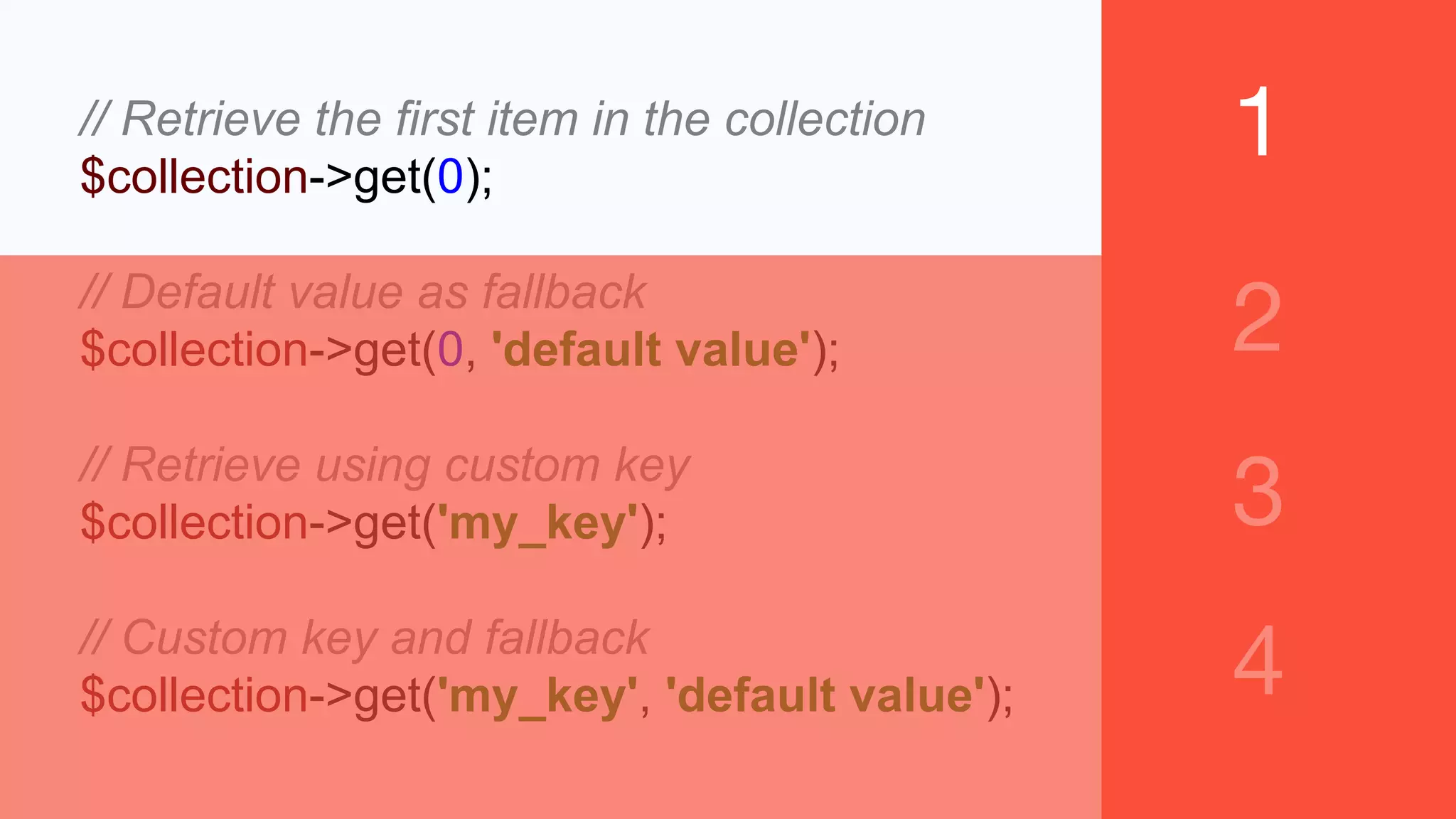
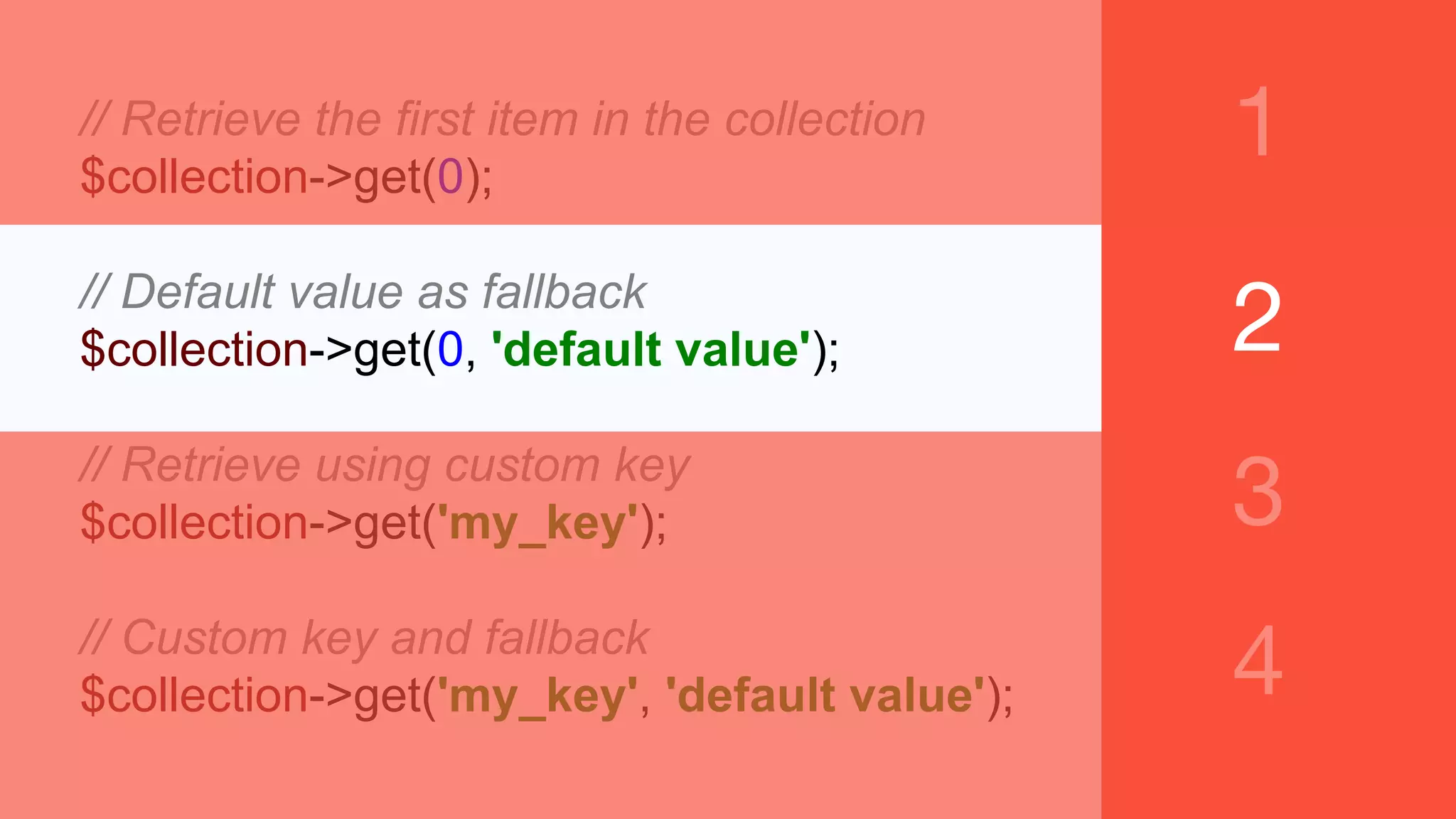
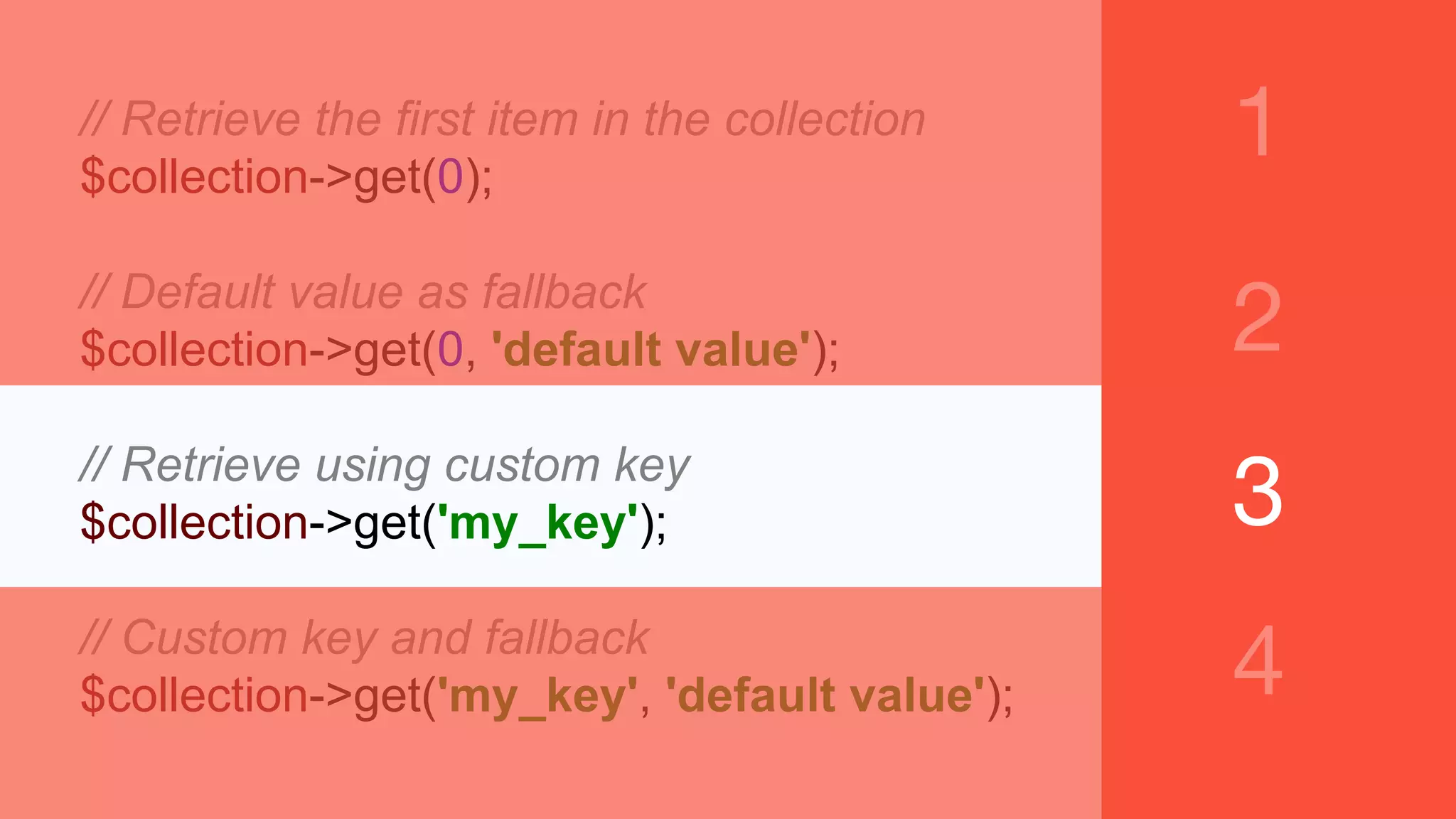
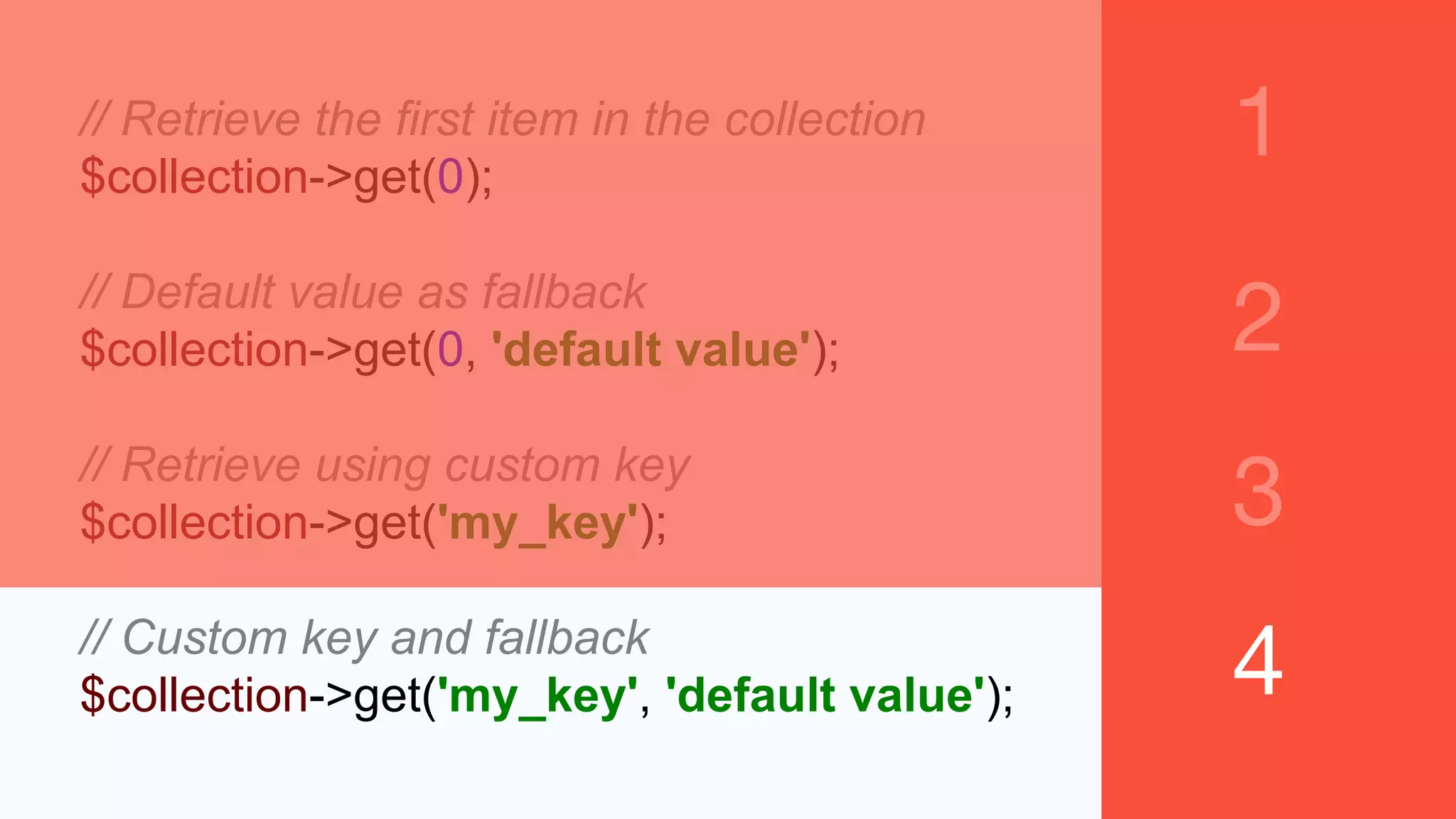
![$invoices = []; foreach ($request as $each) { $invoices[$each['send_date']] = [ 'deal_id' => $each['deal_id'], 'company_id' => $companyId, 'invoice_id' => $each['invoice_id'], 'invoice_term' => Invoices::TERM_30, 'send_same_invoice' => $each['send_same_invoice'], ]; }](https://image.slidesharecdn.com/laraveltherightway-phpconf2016-161204193046/75/Laravel-the-right-way-PHPConference-2016-50-2048.jpg)
